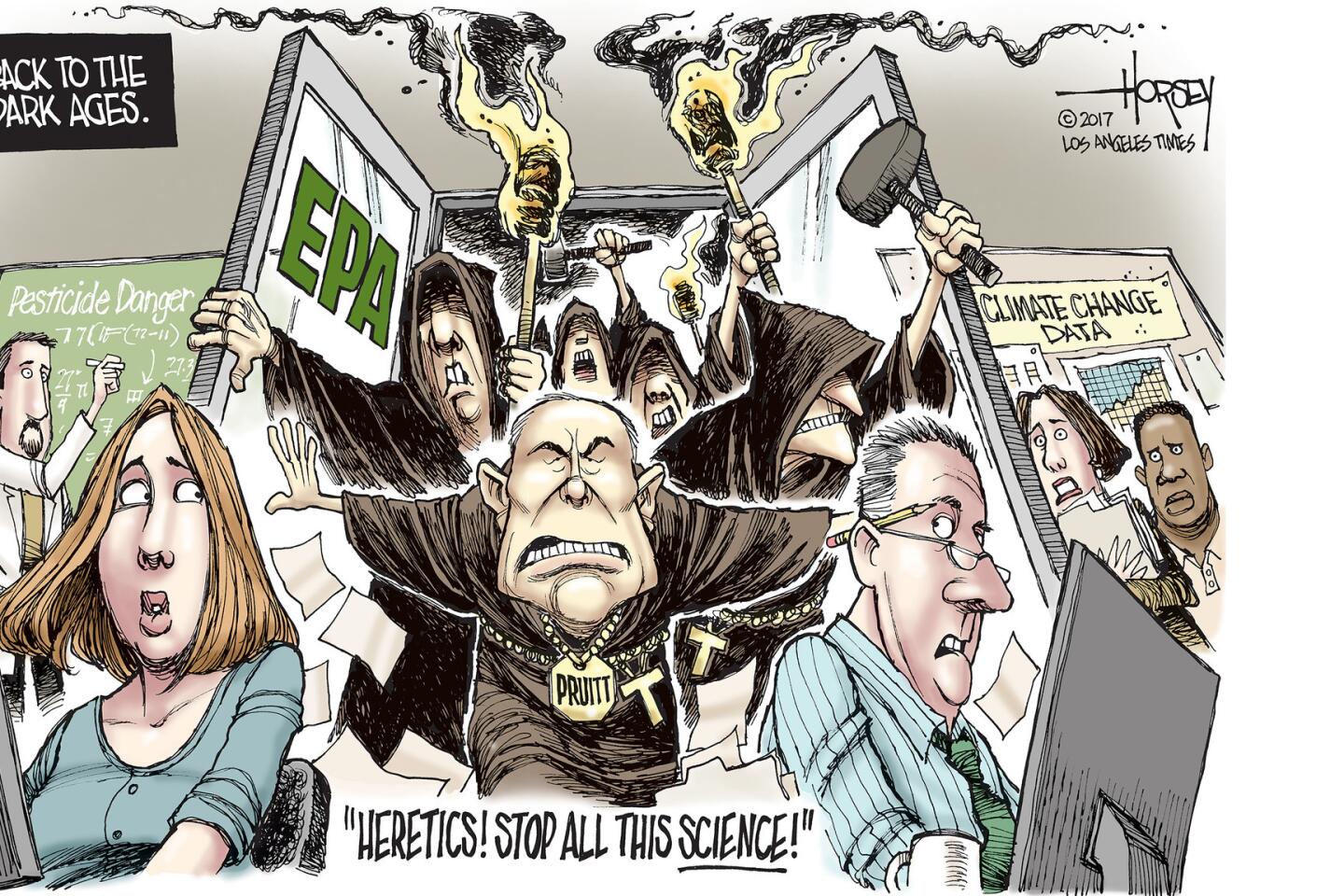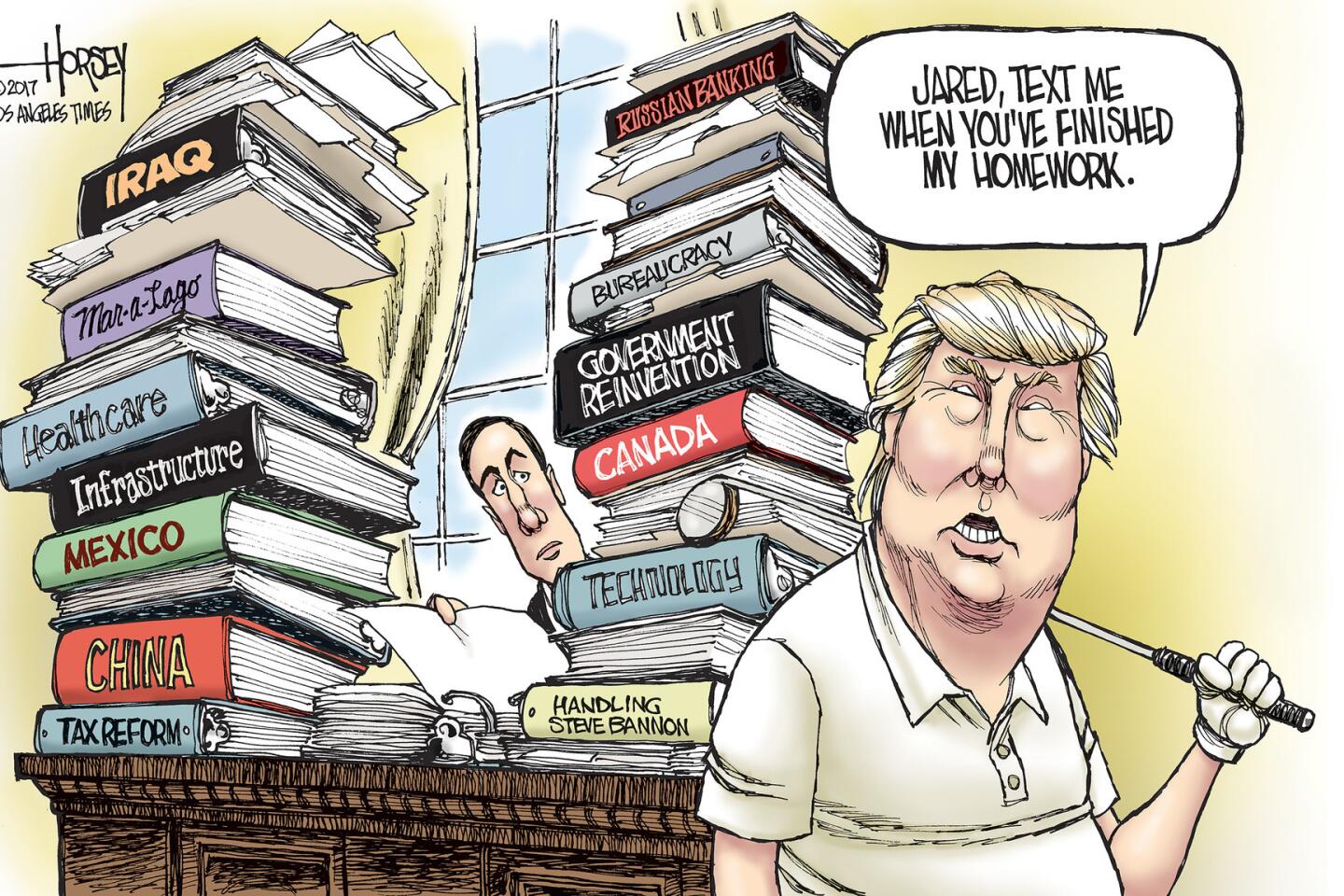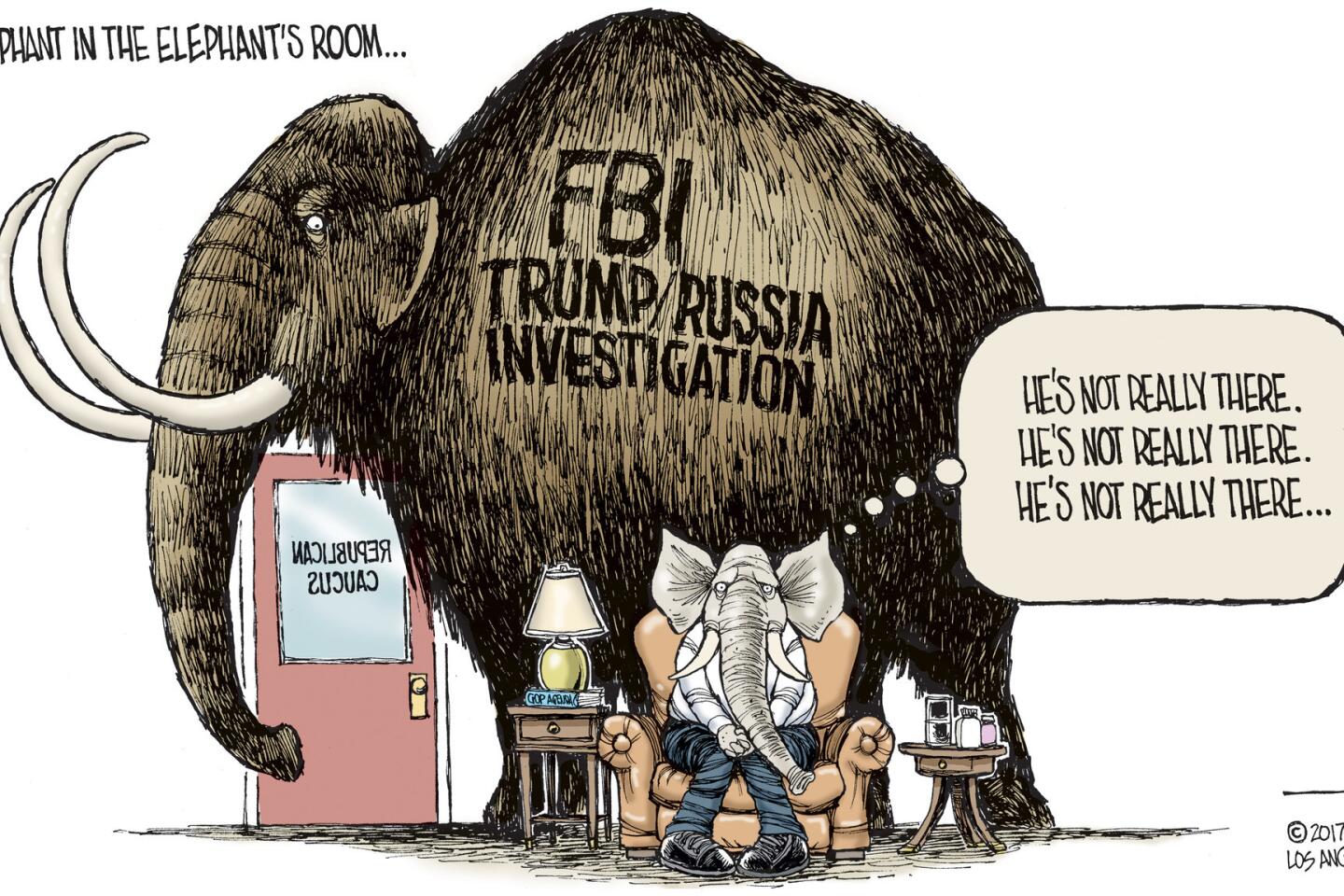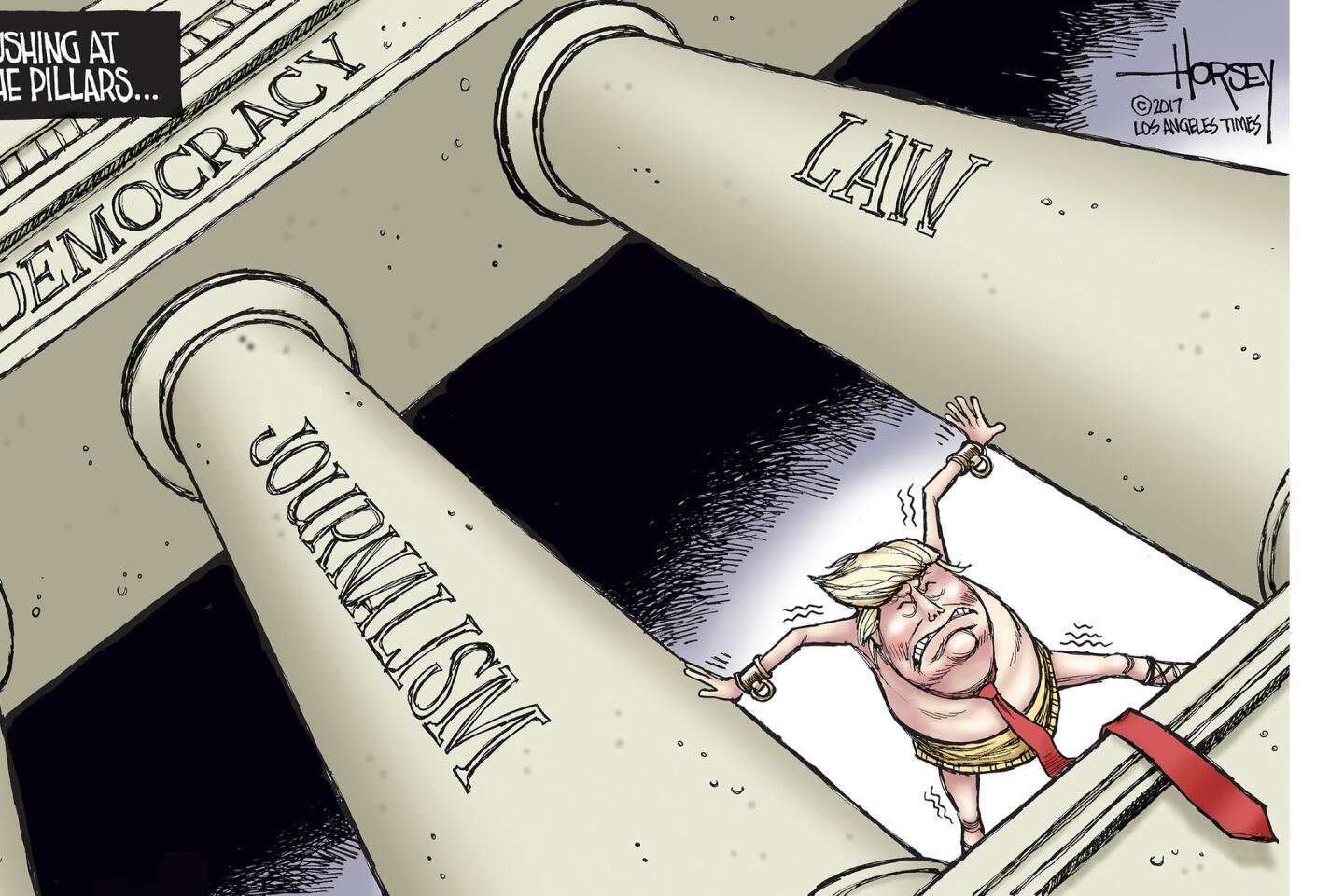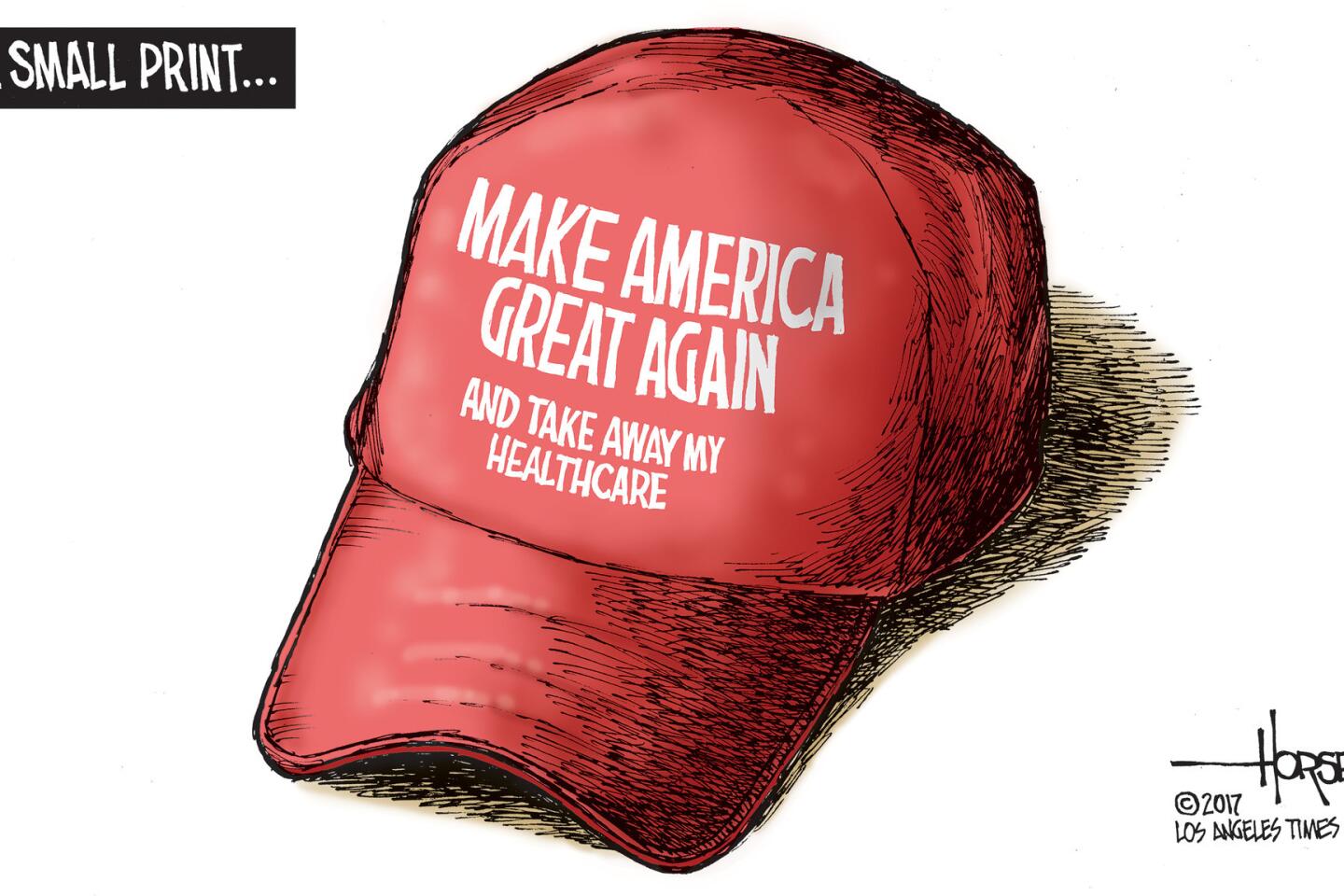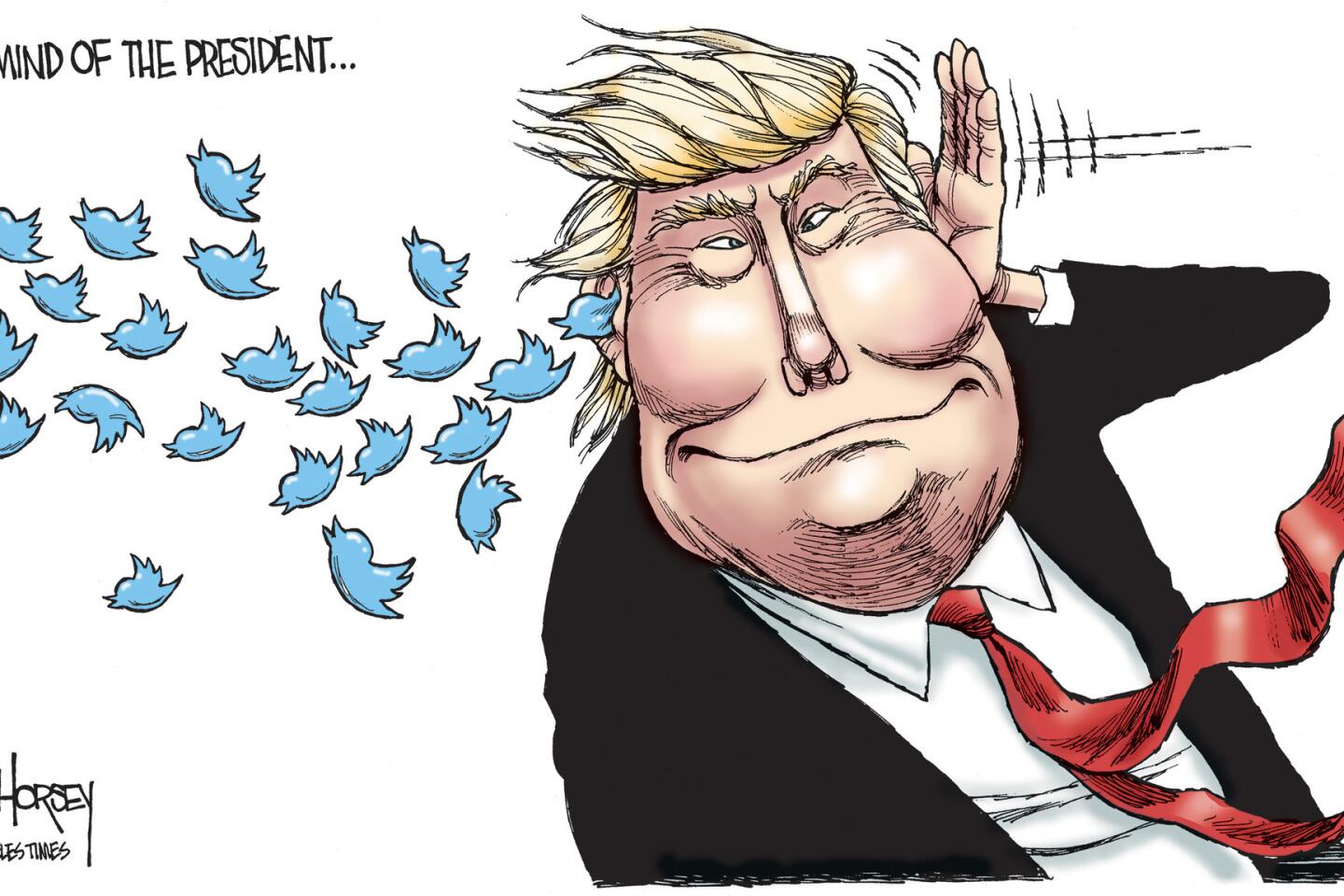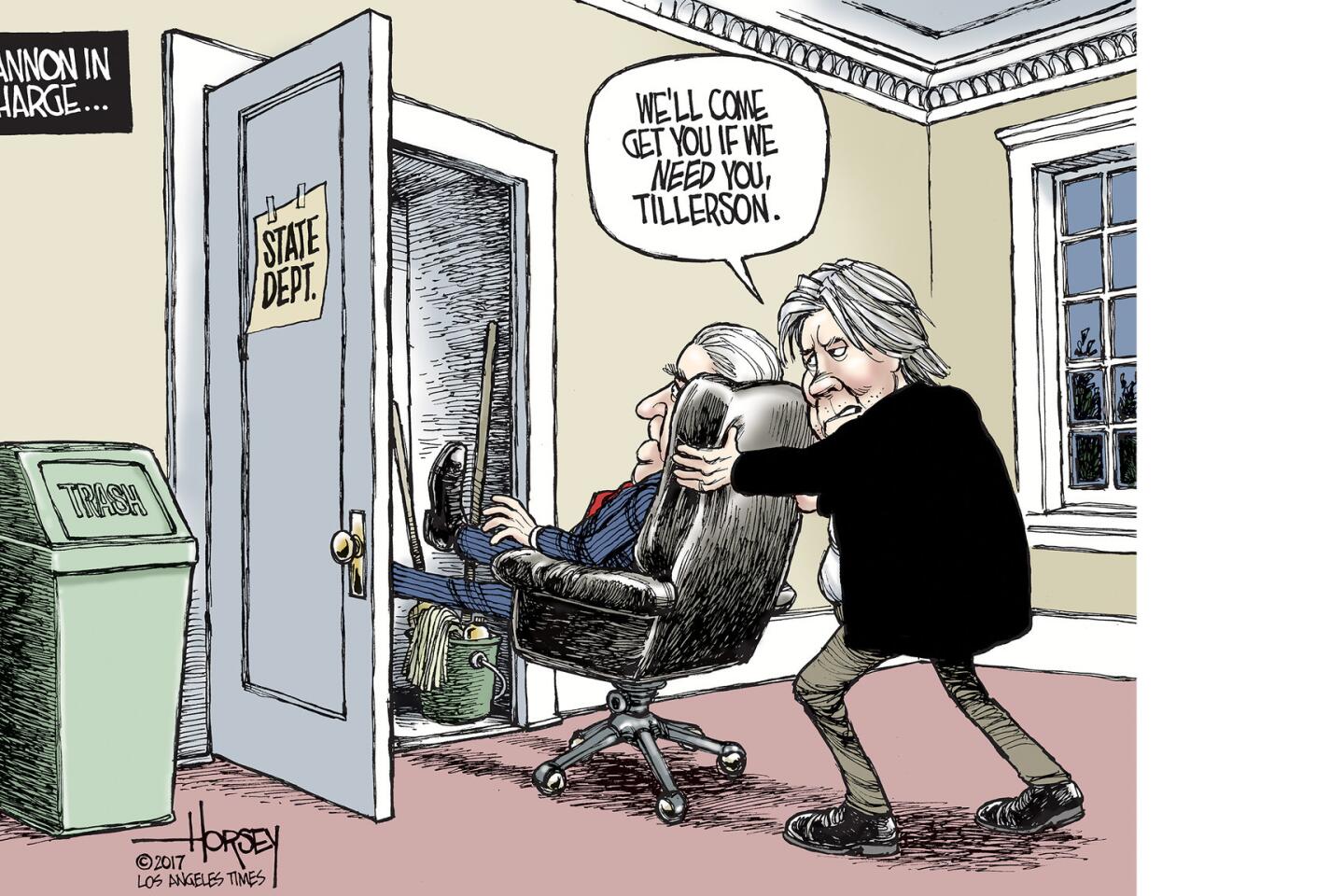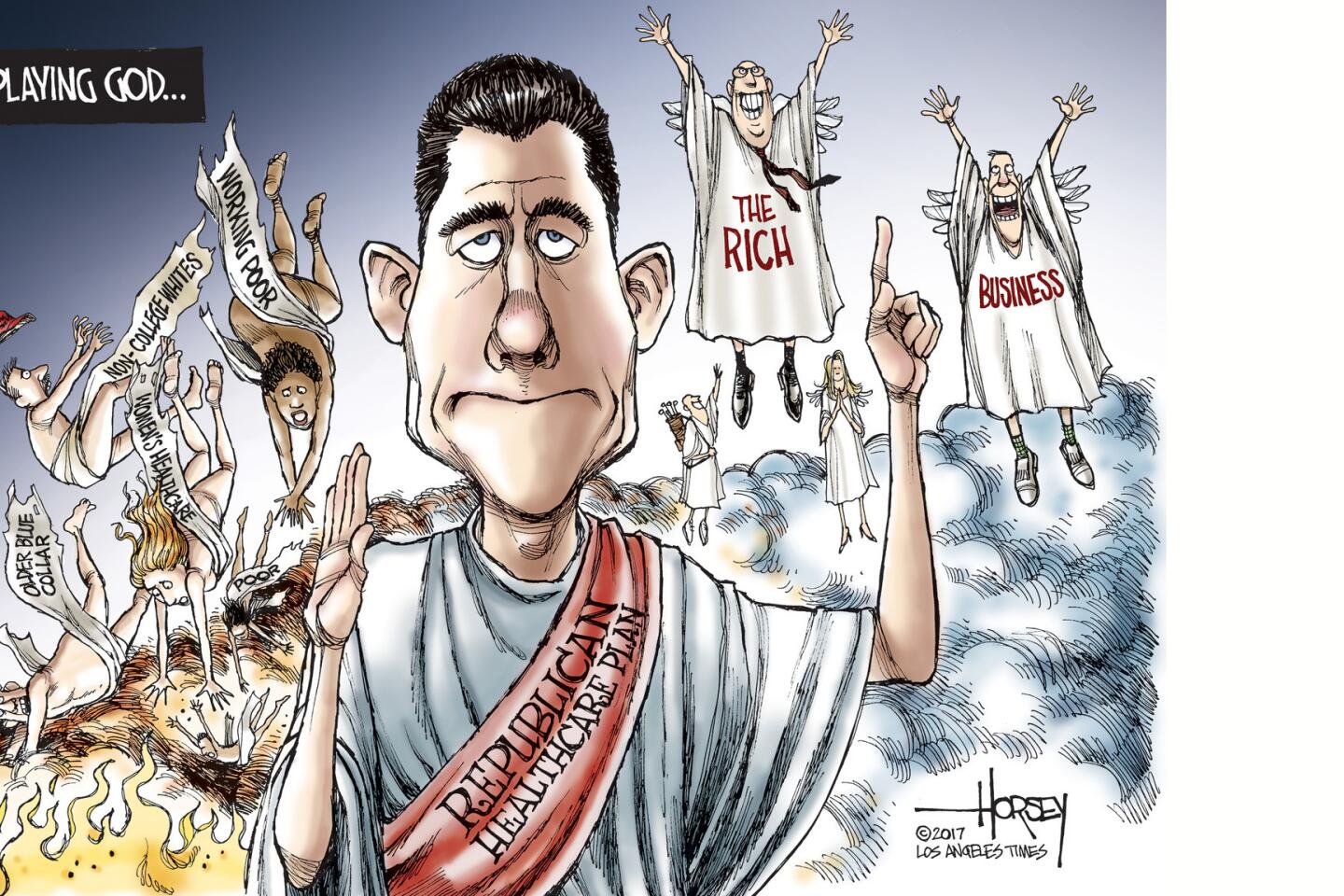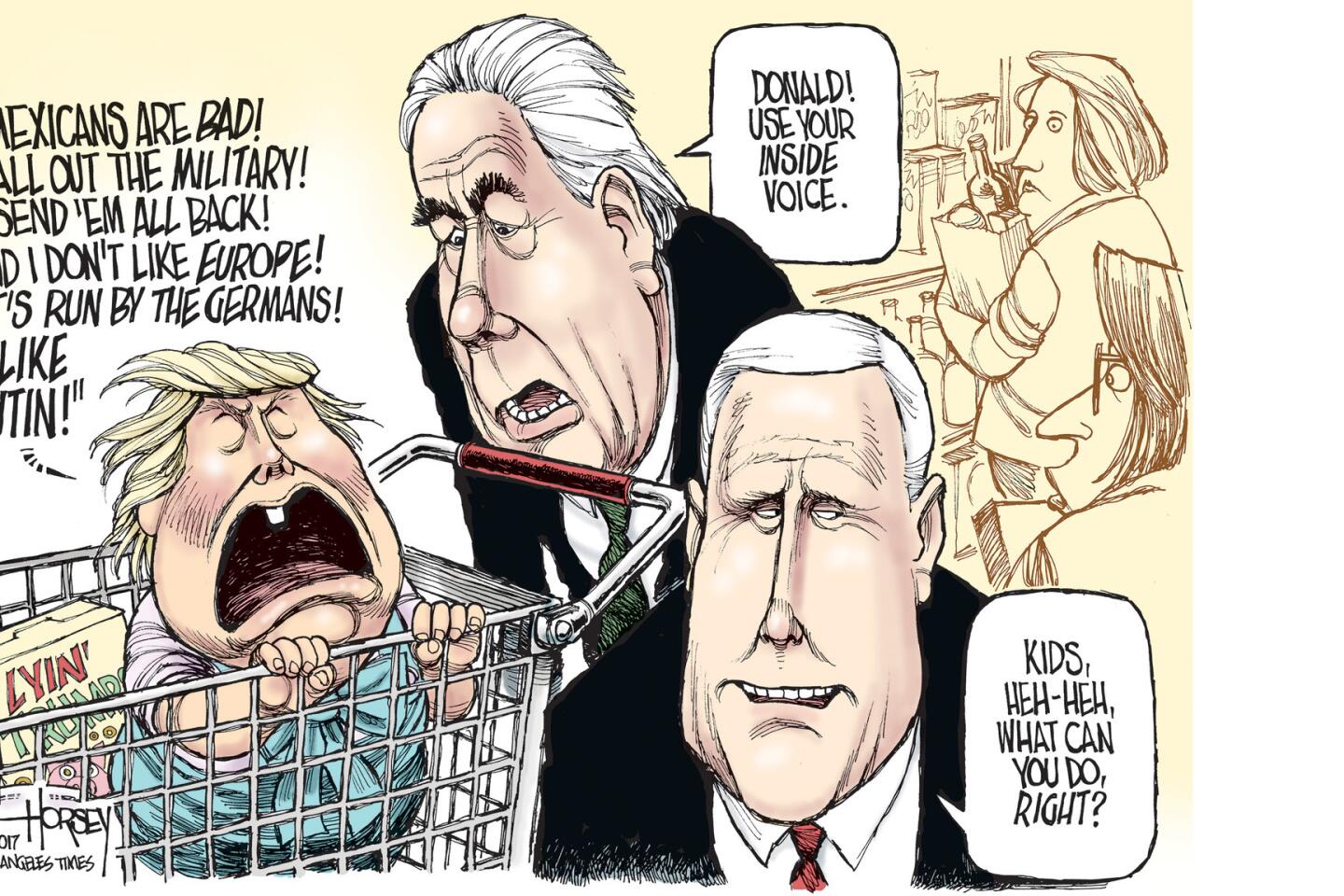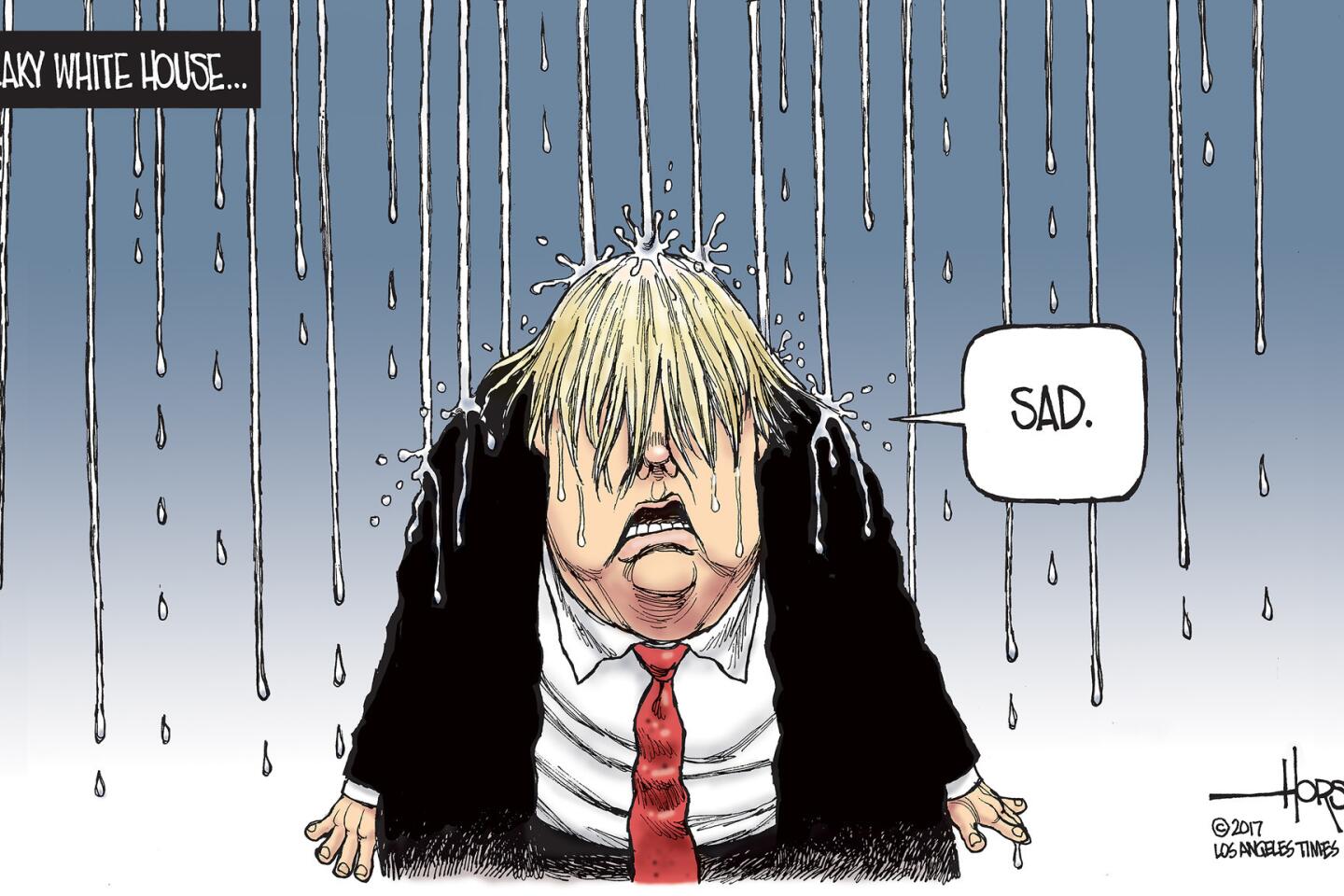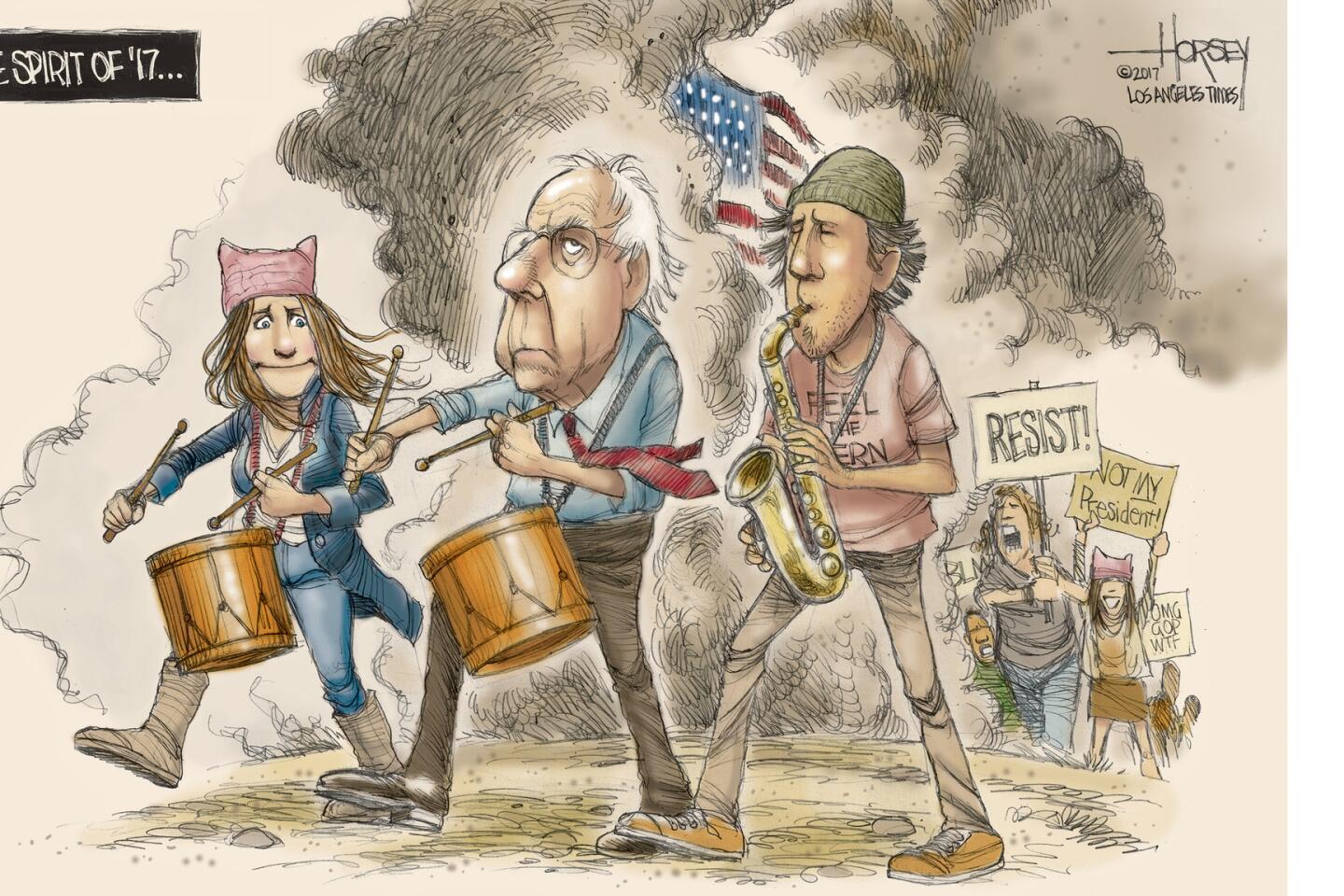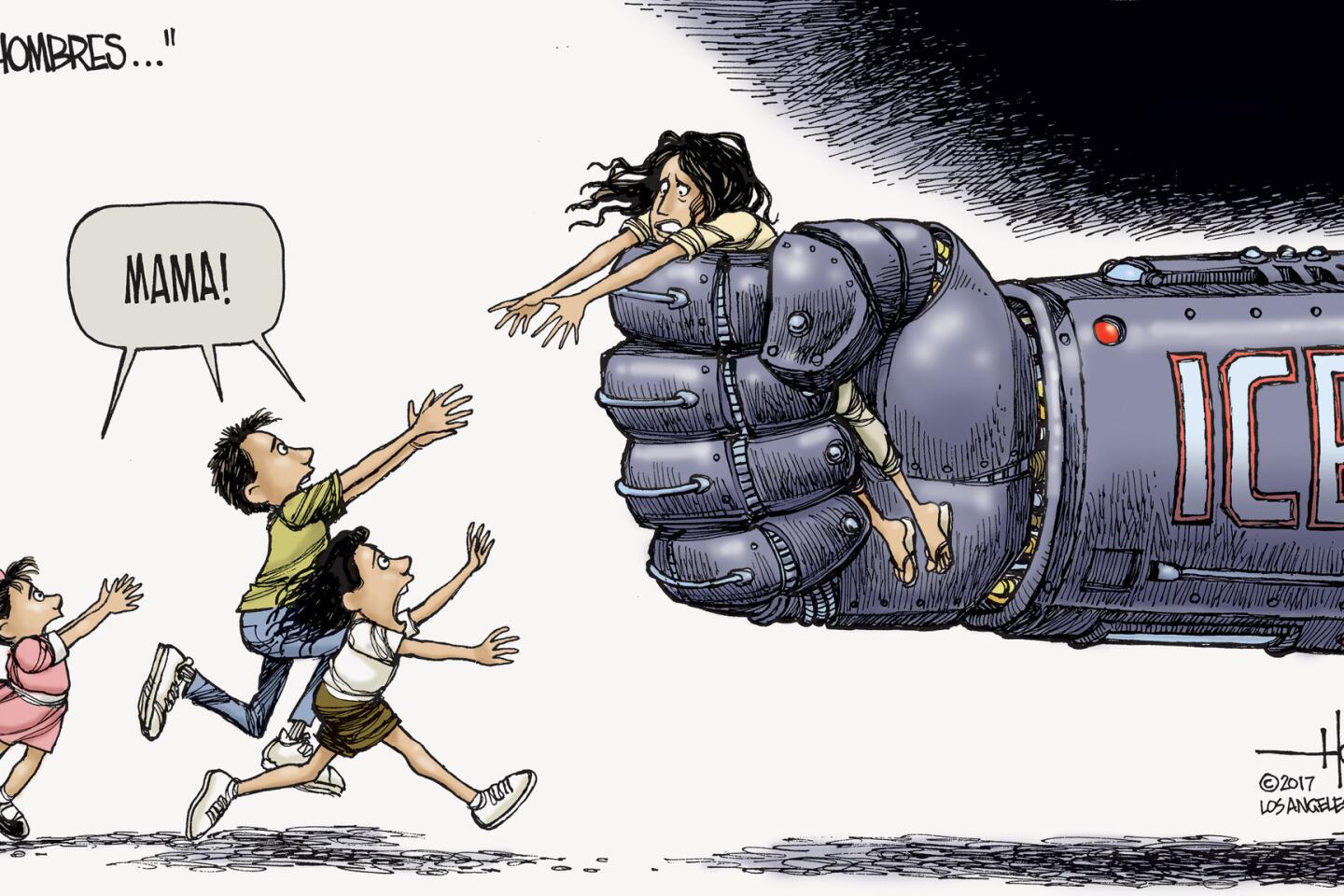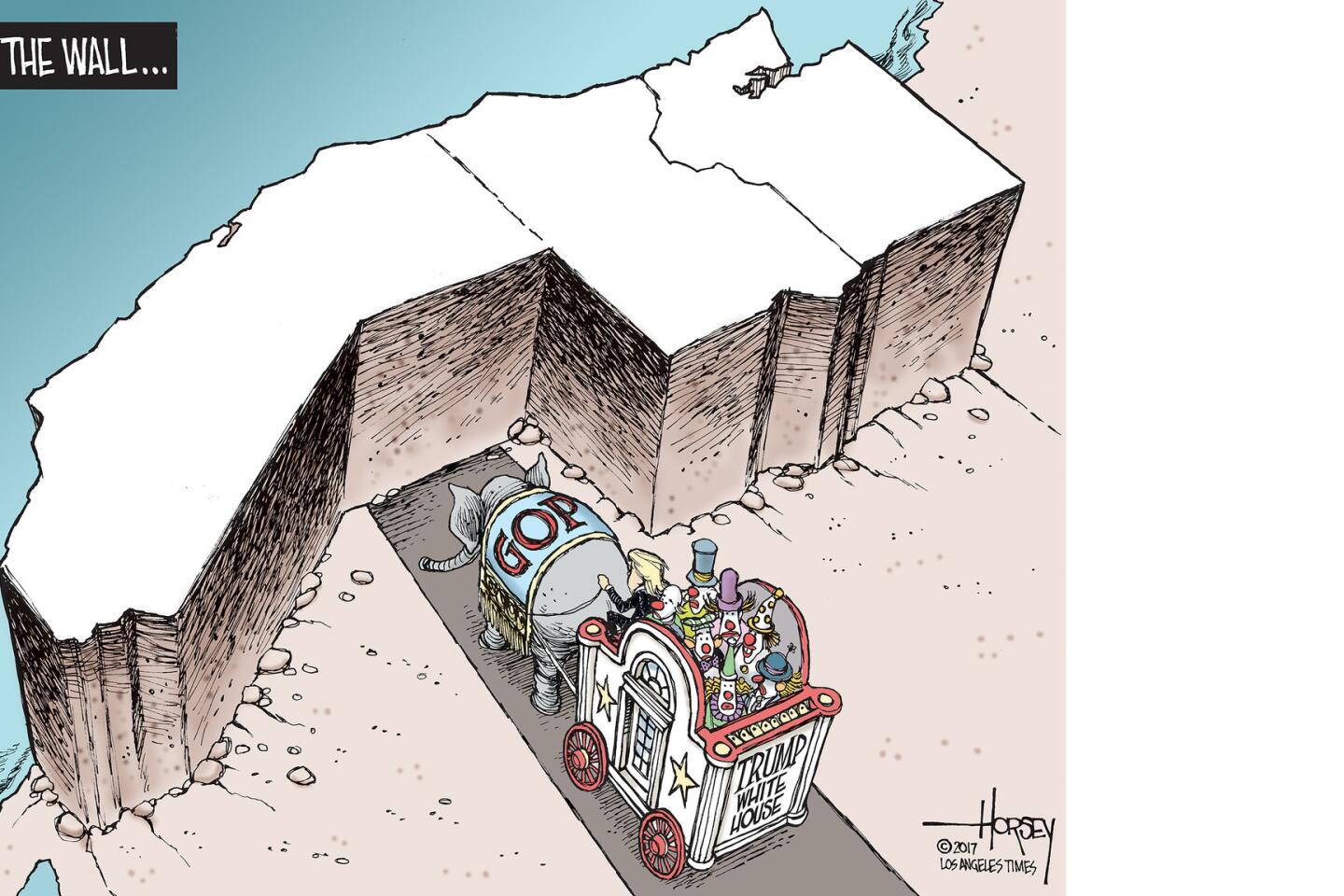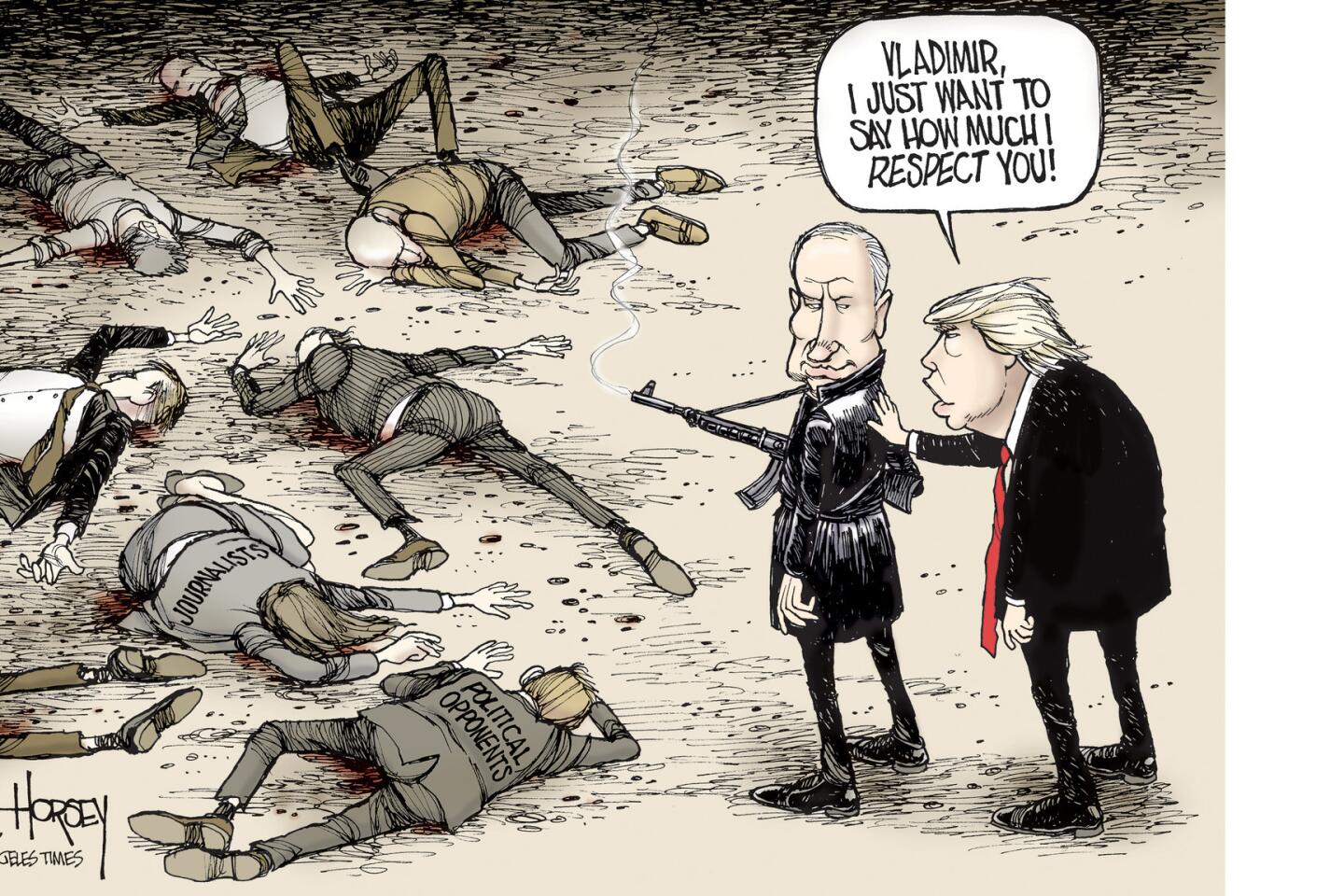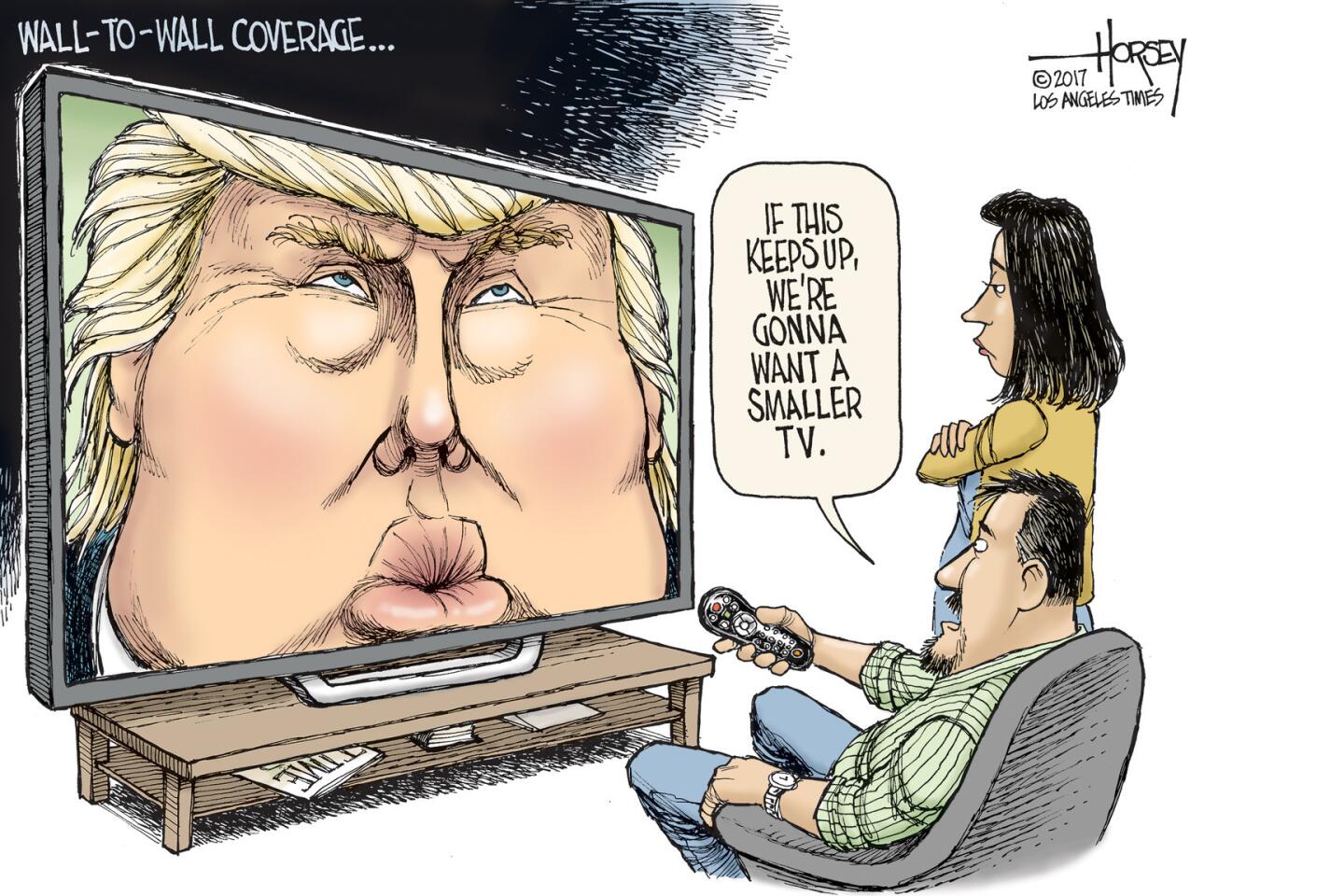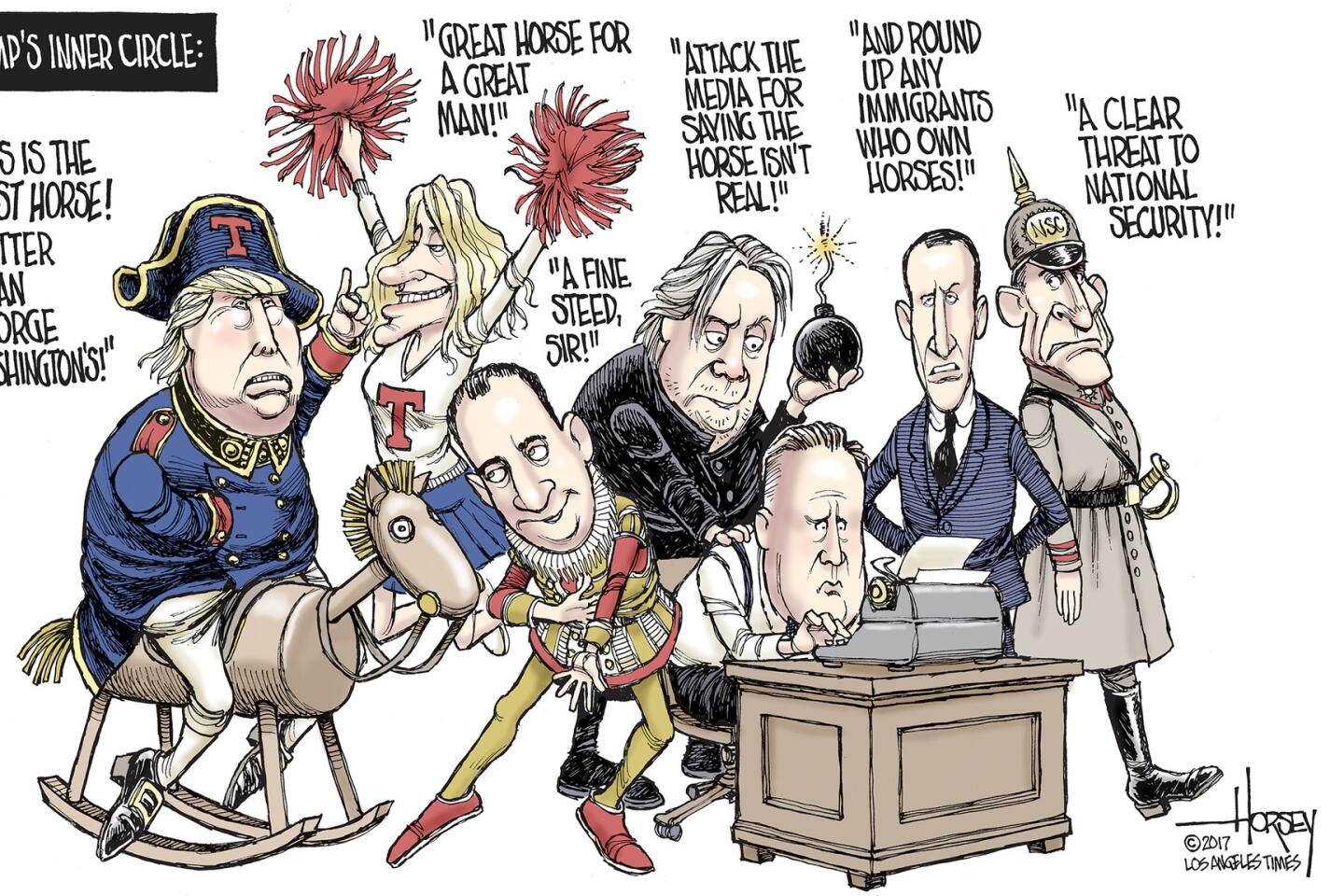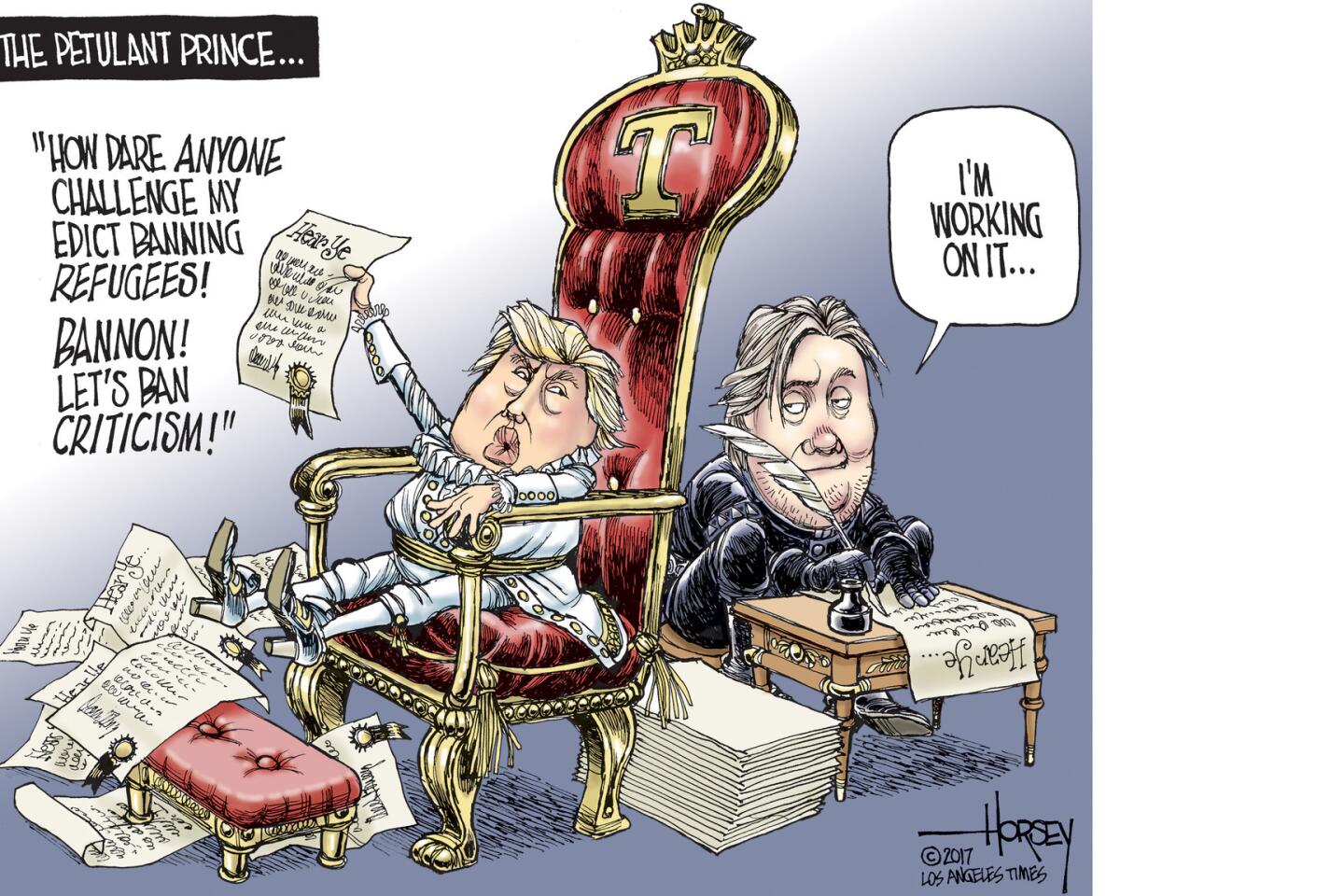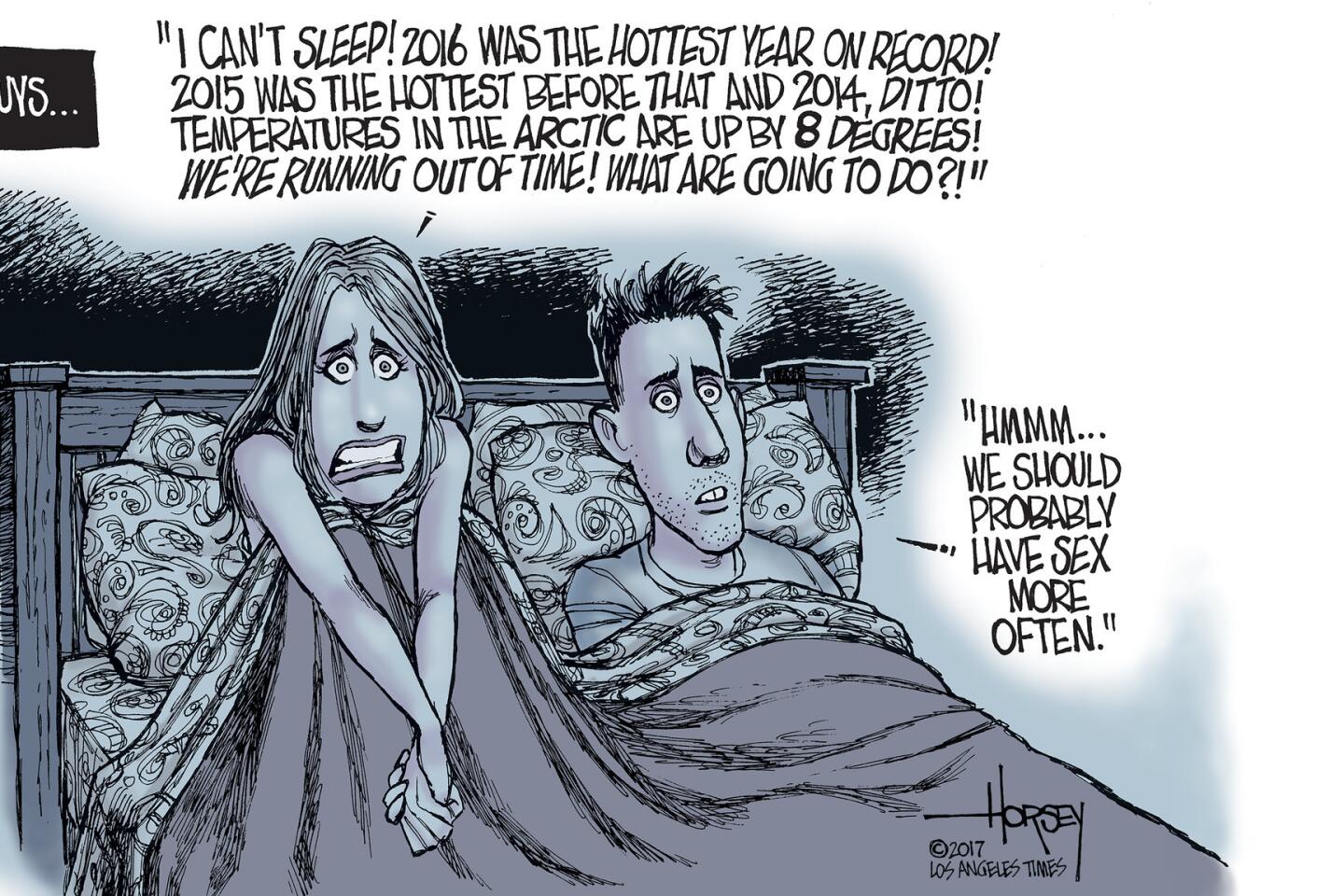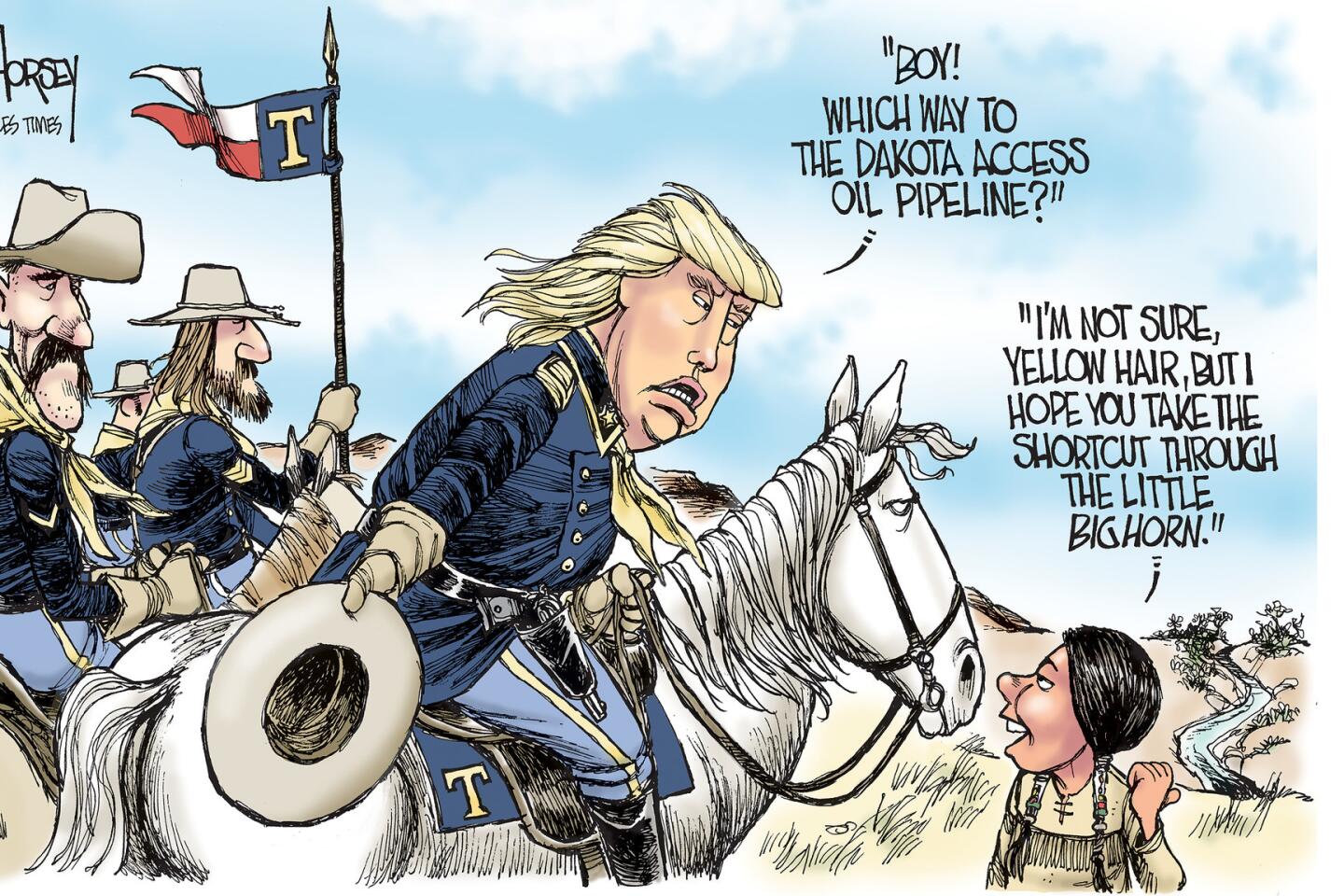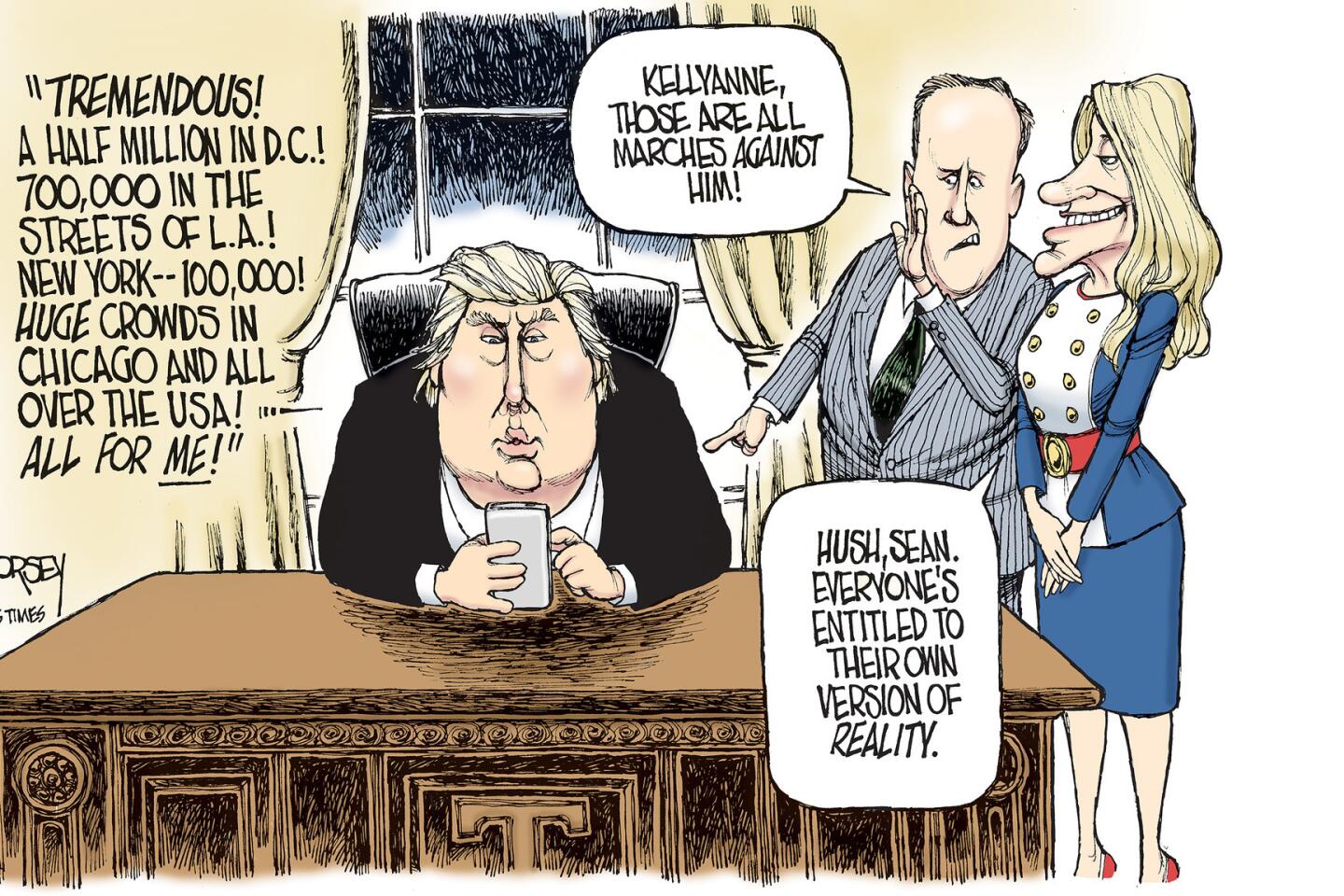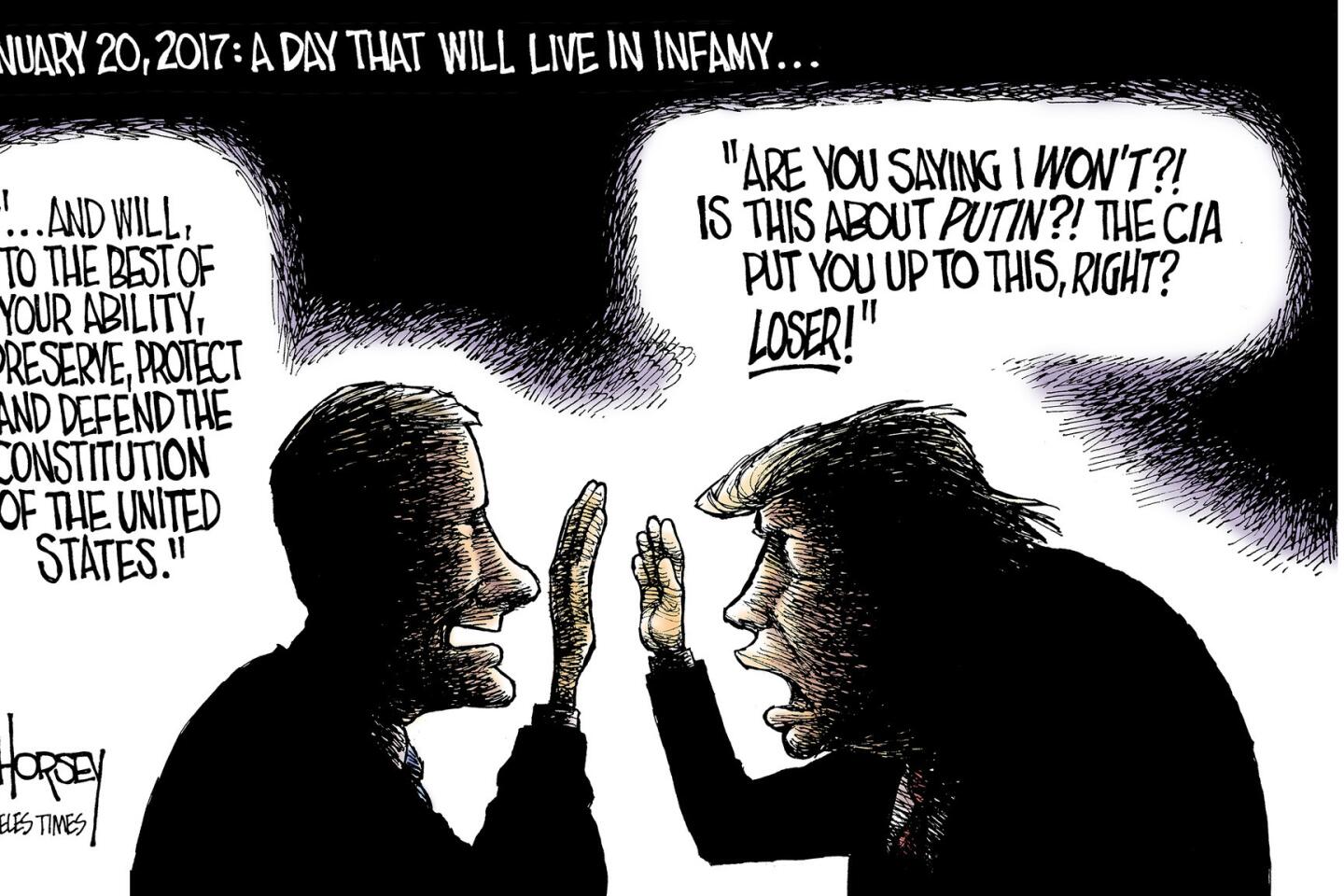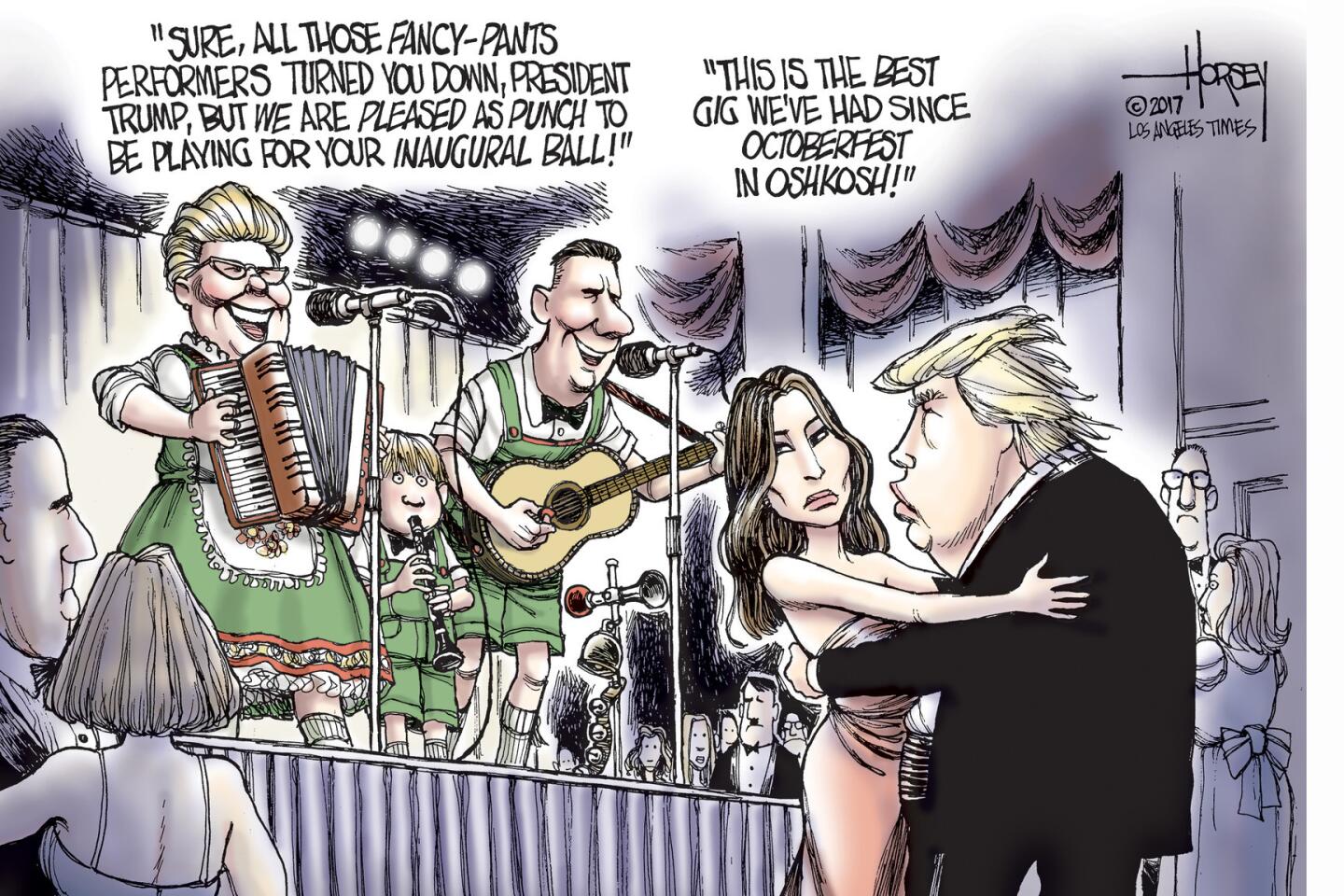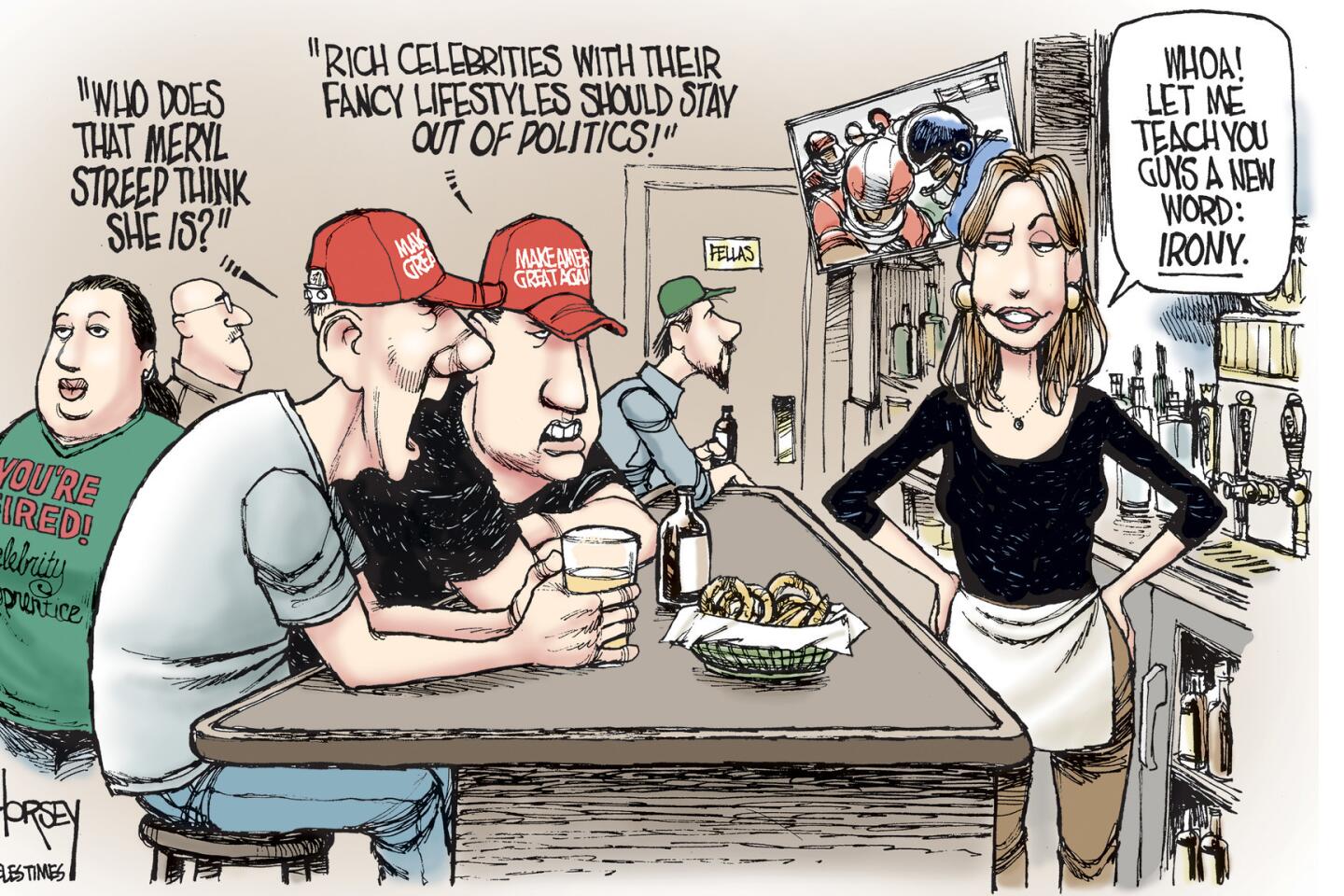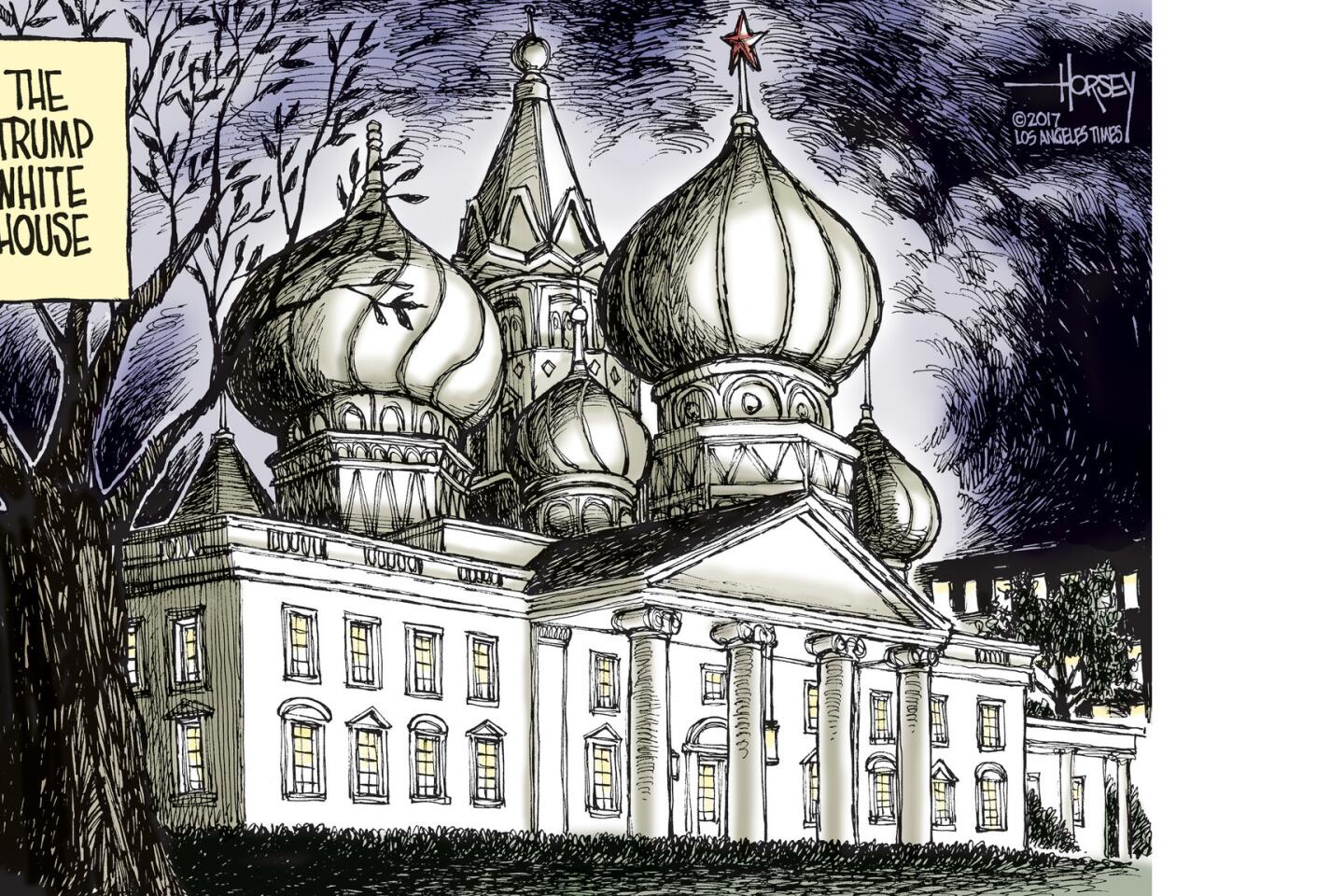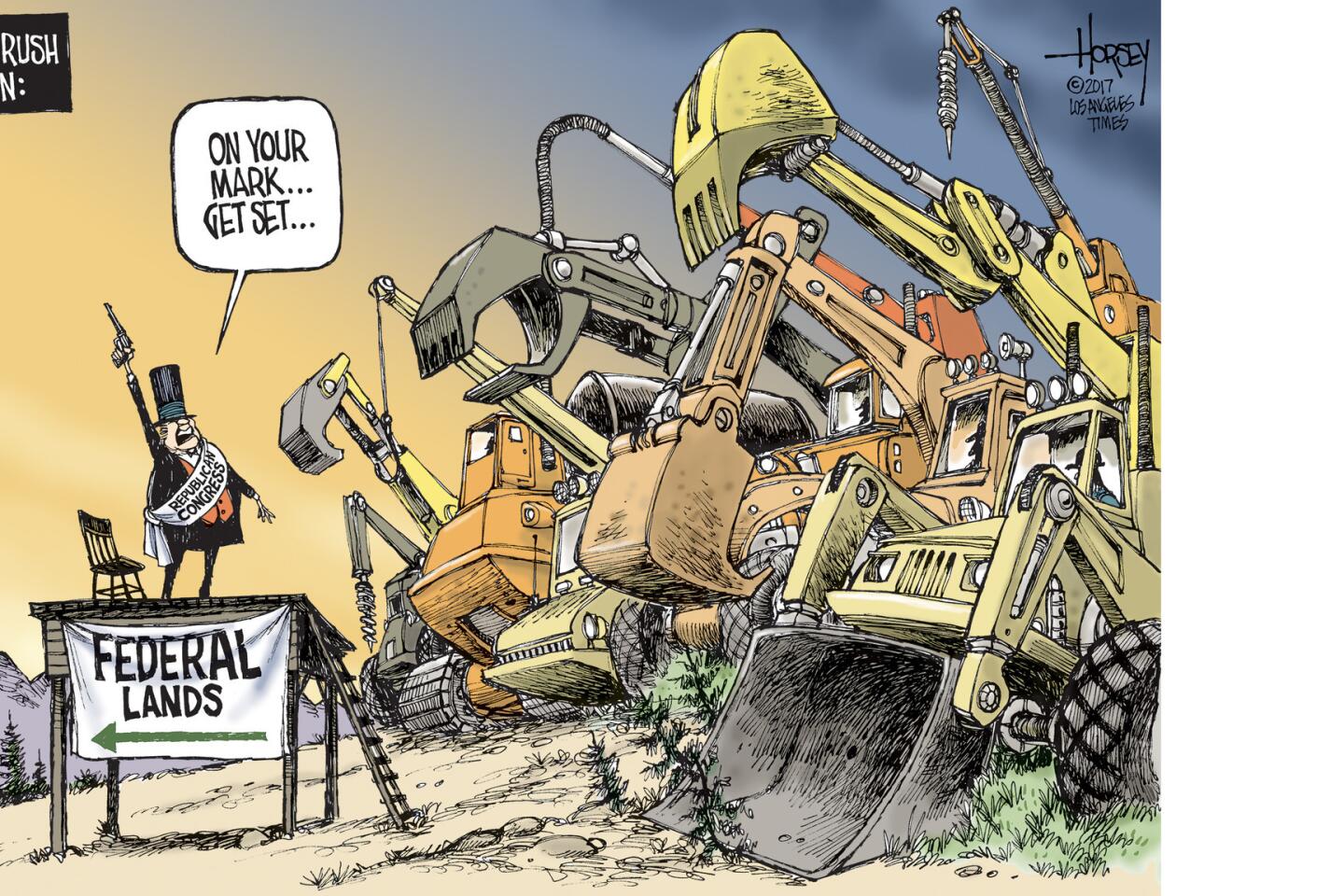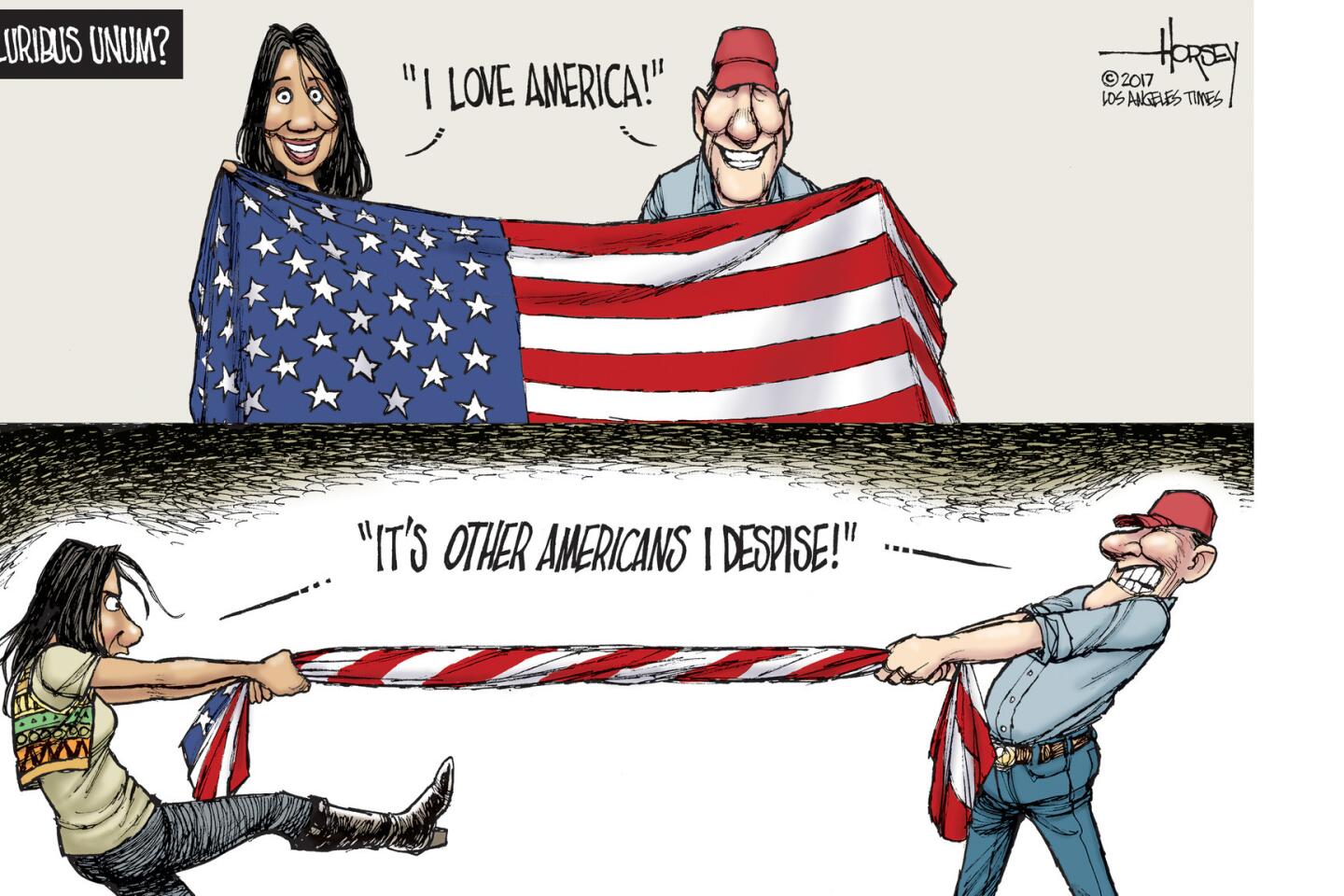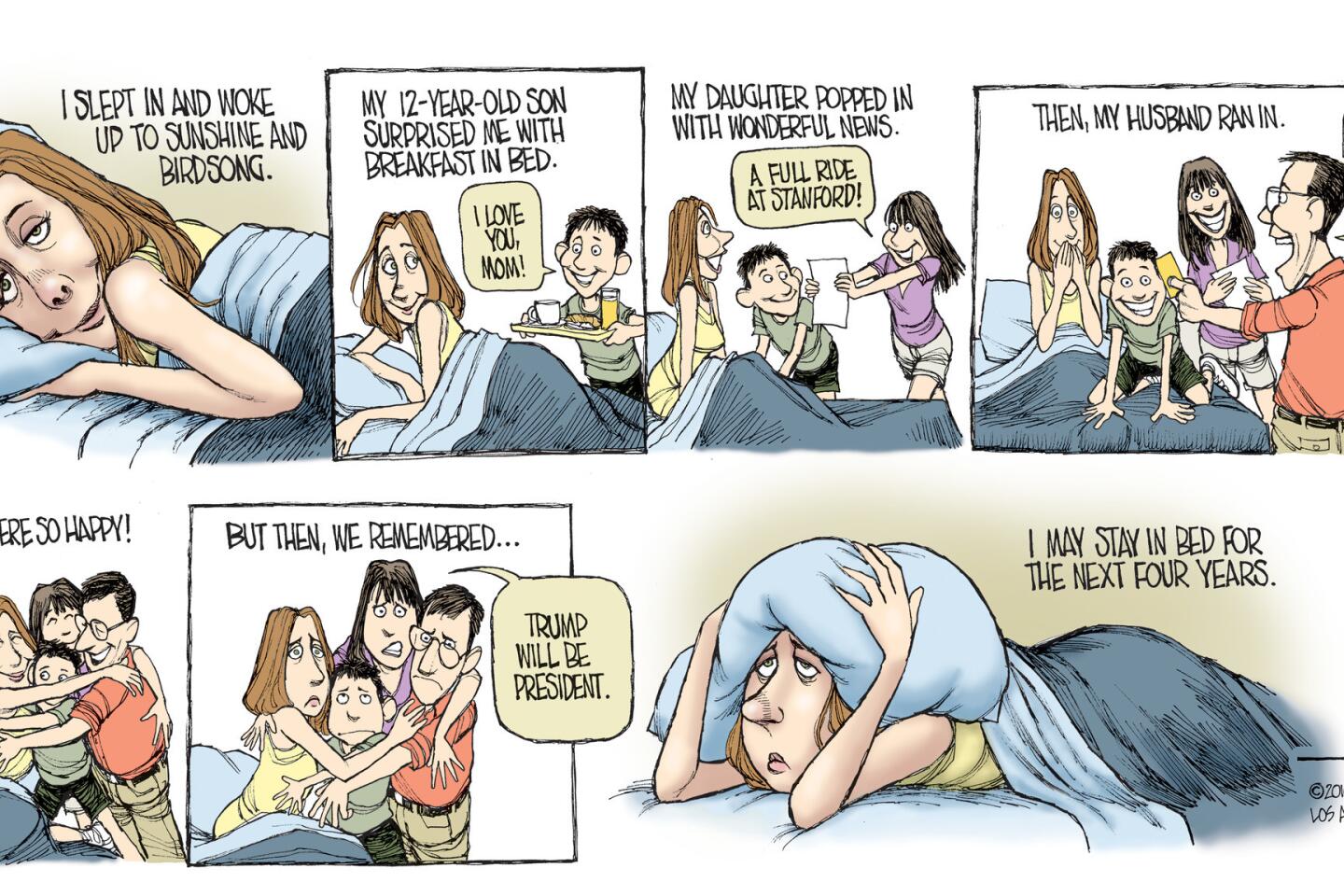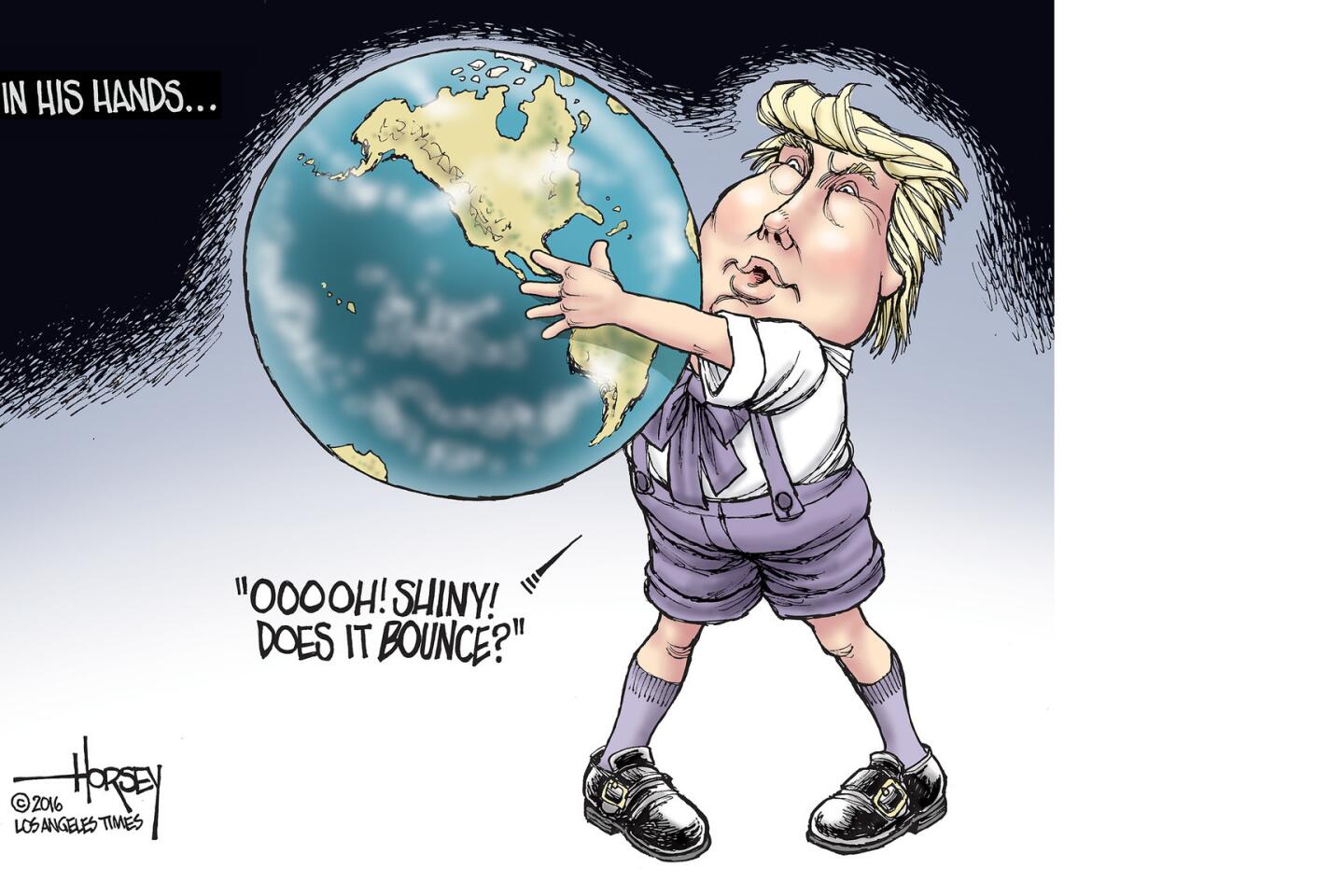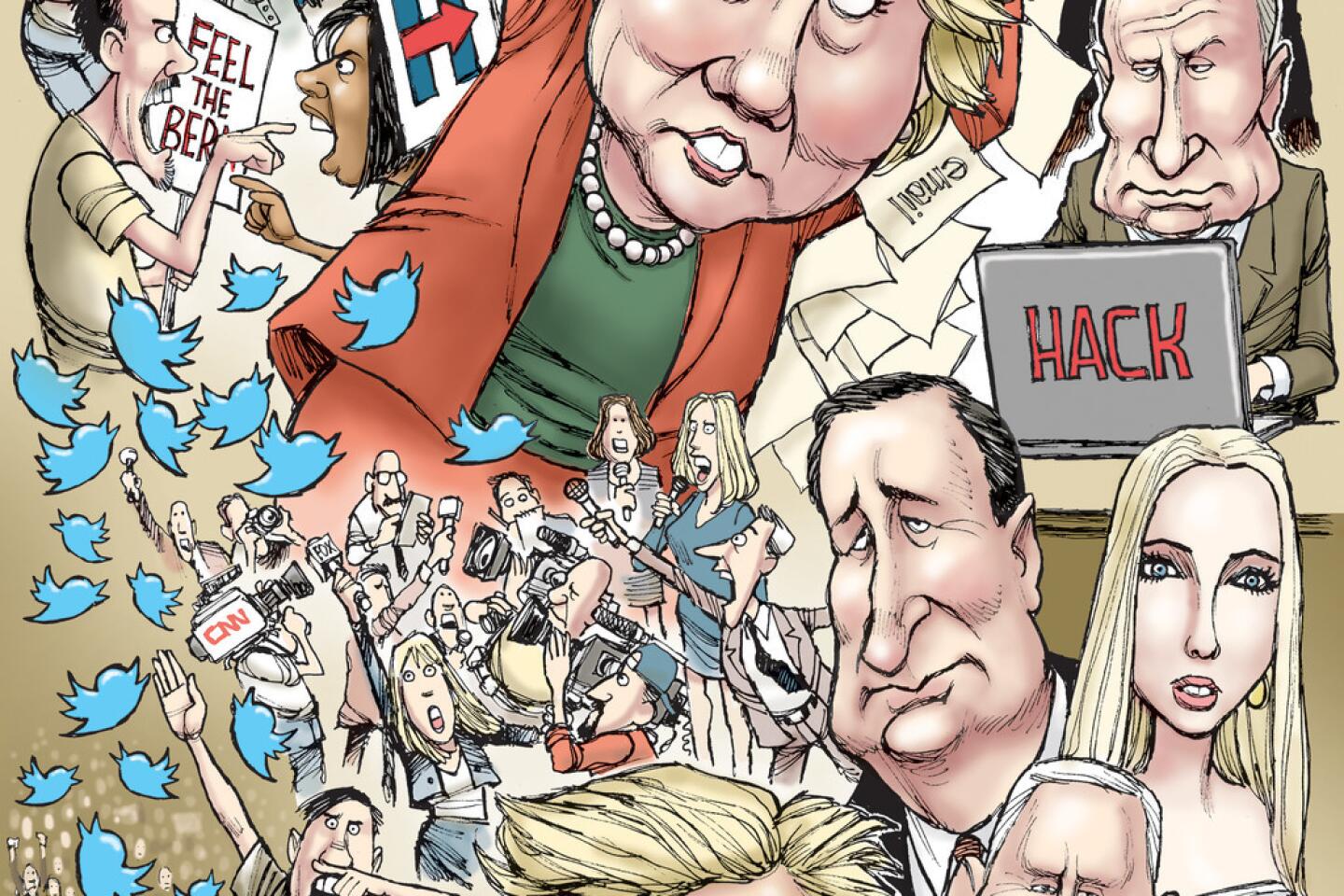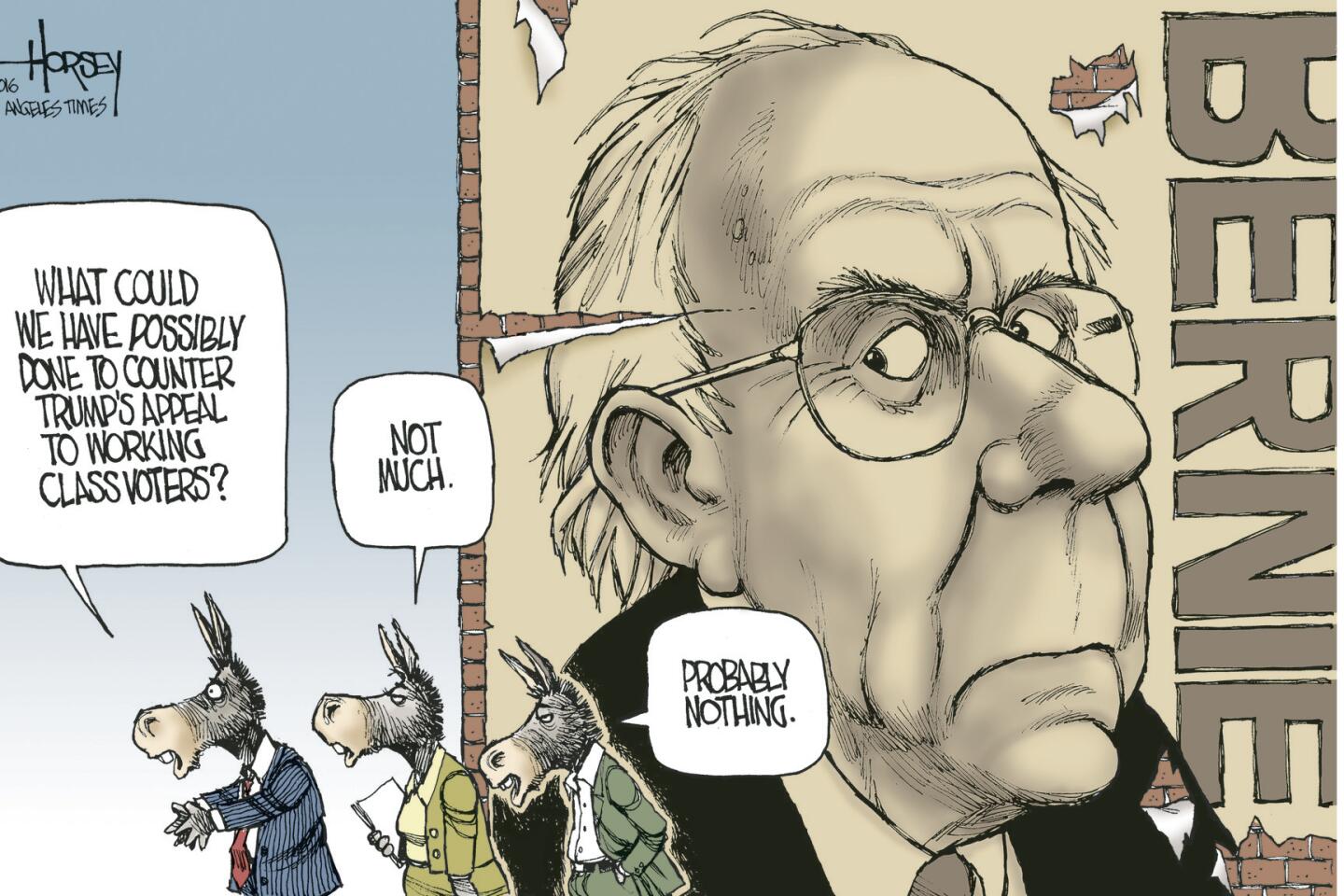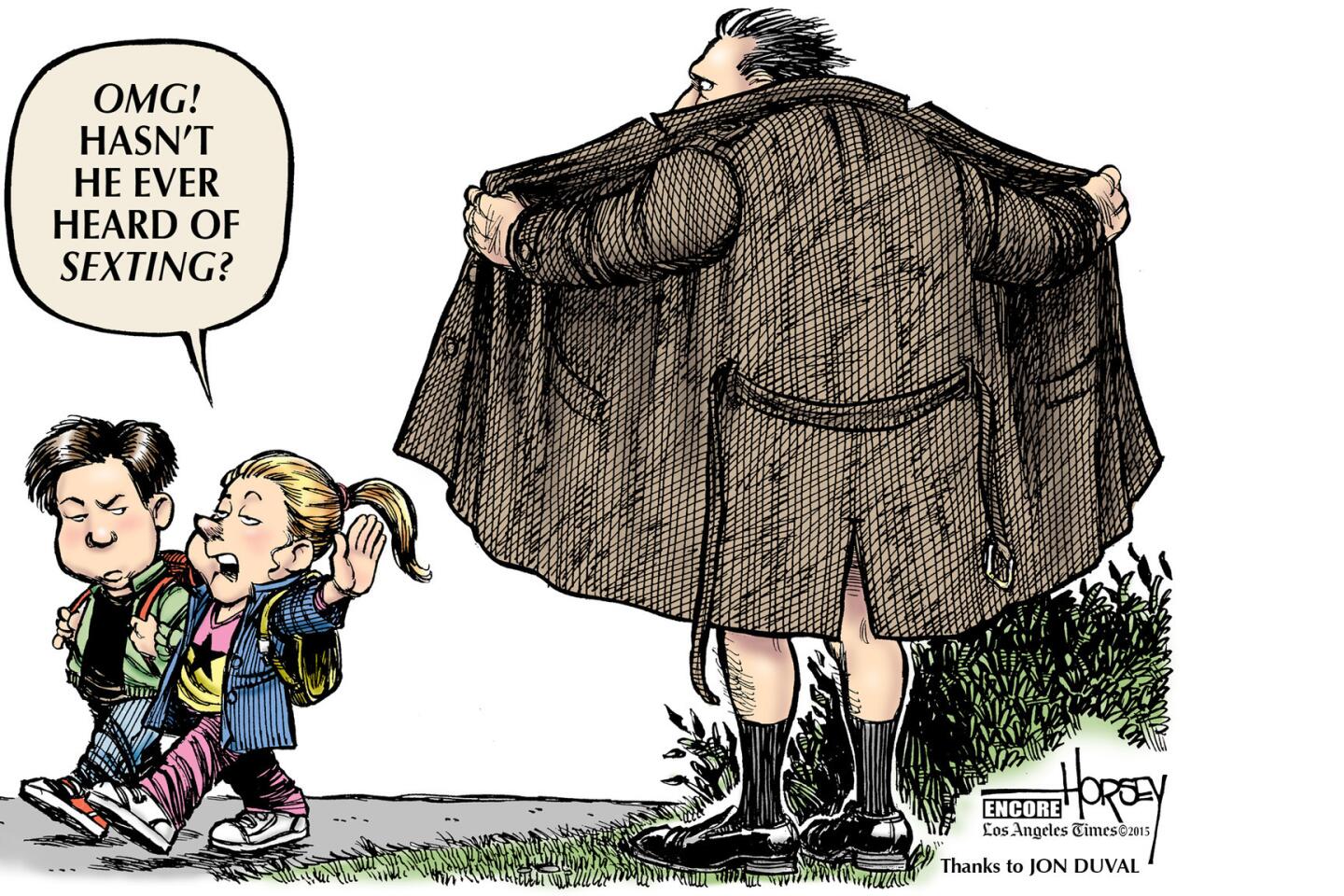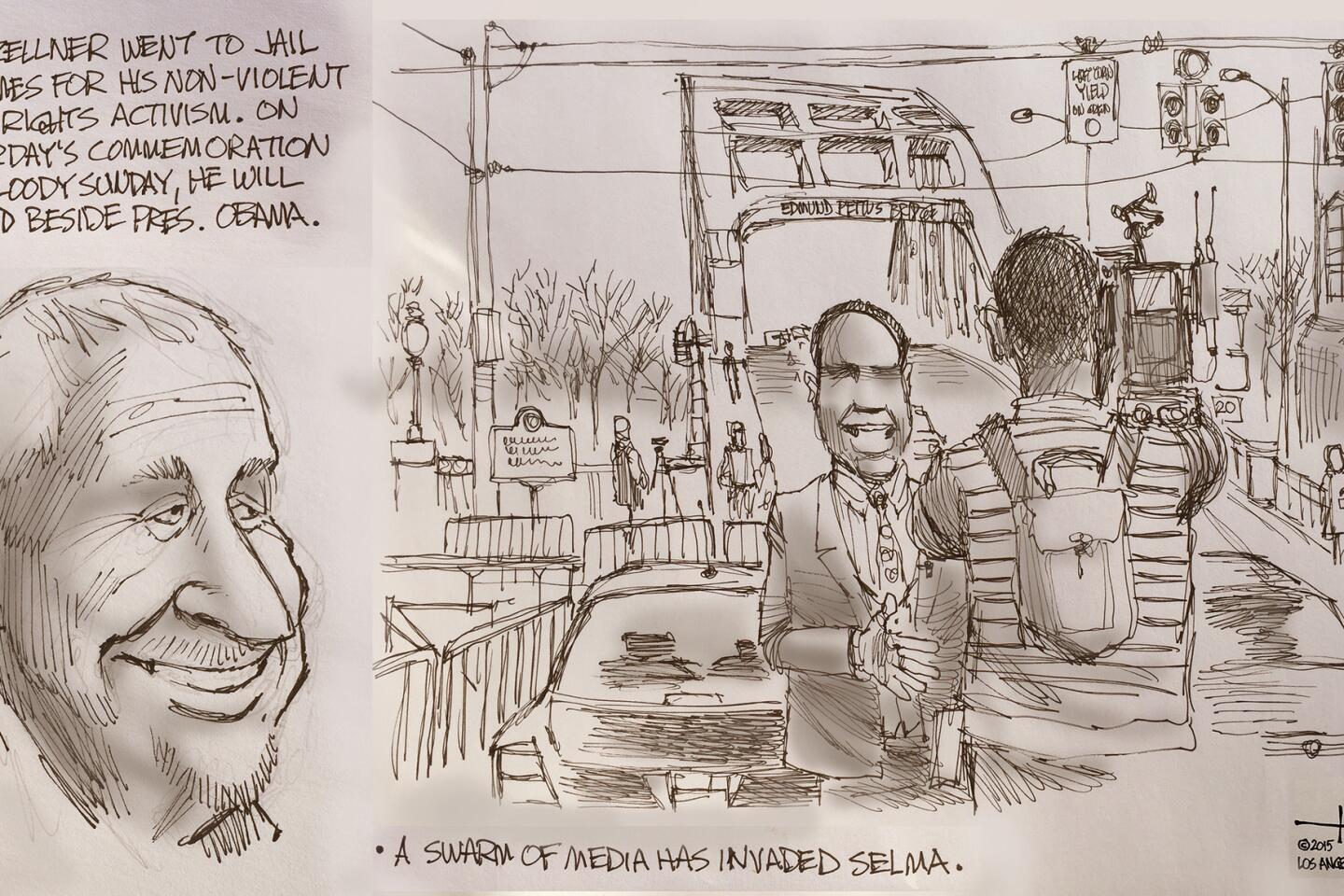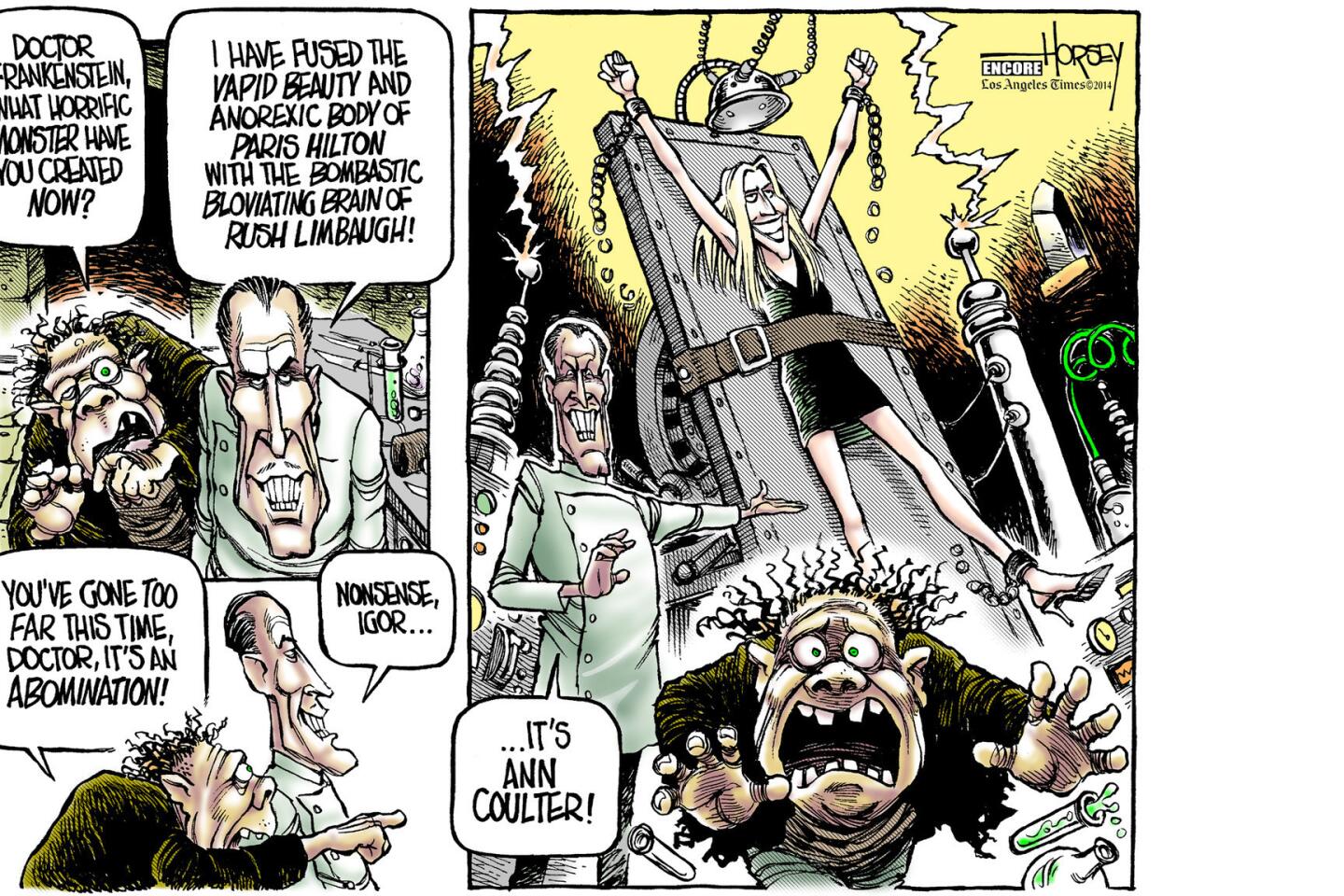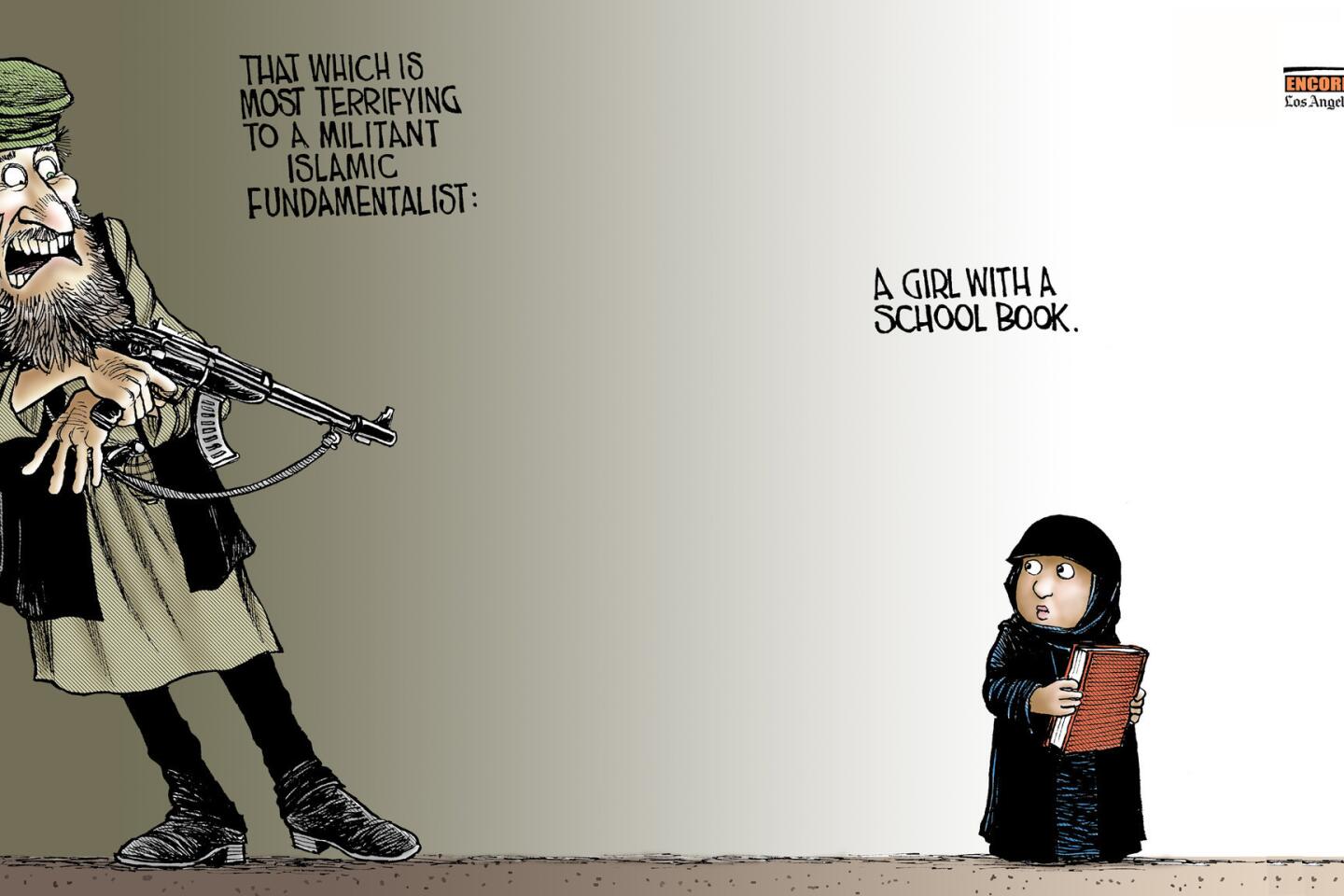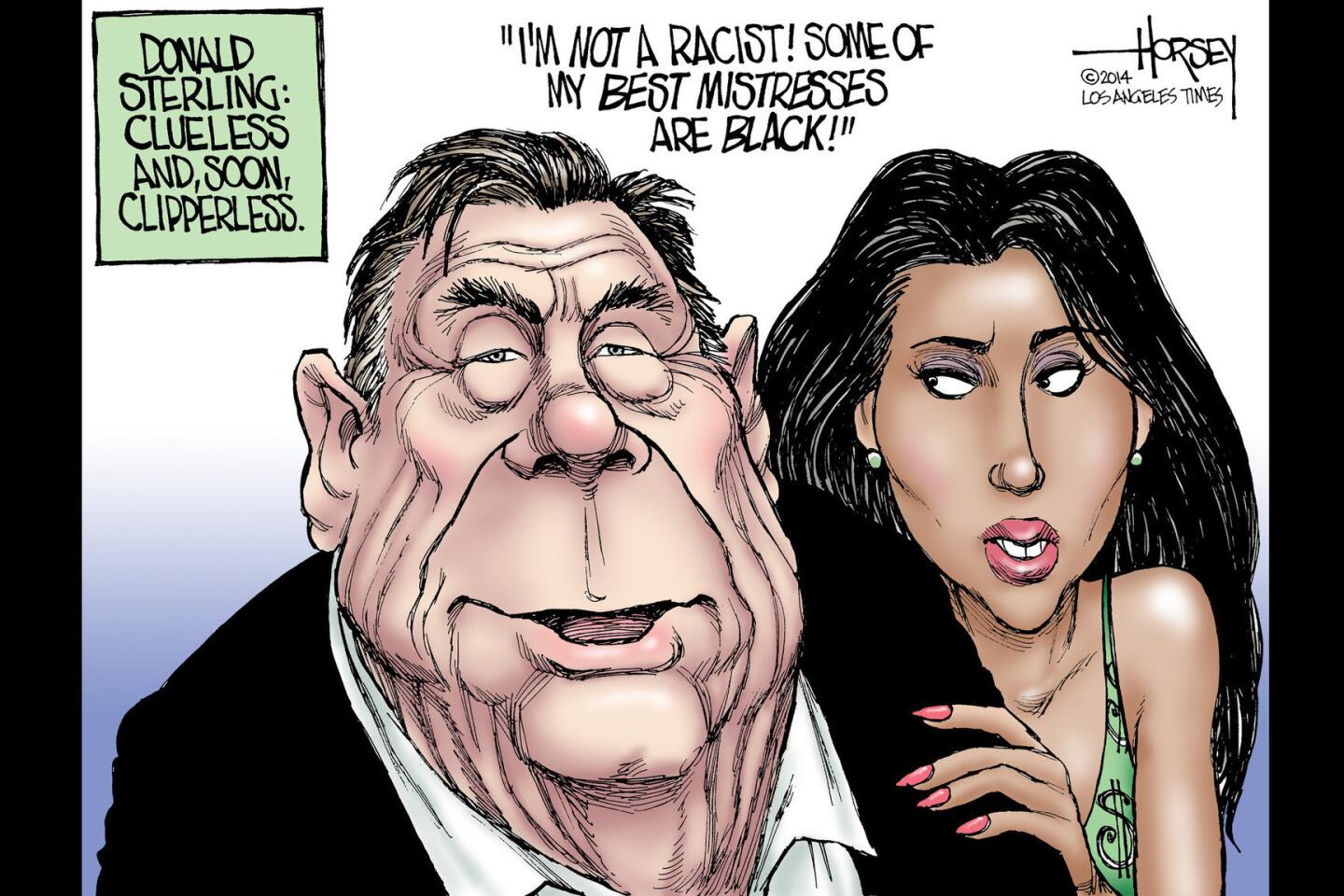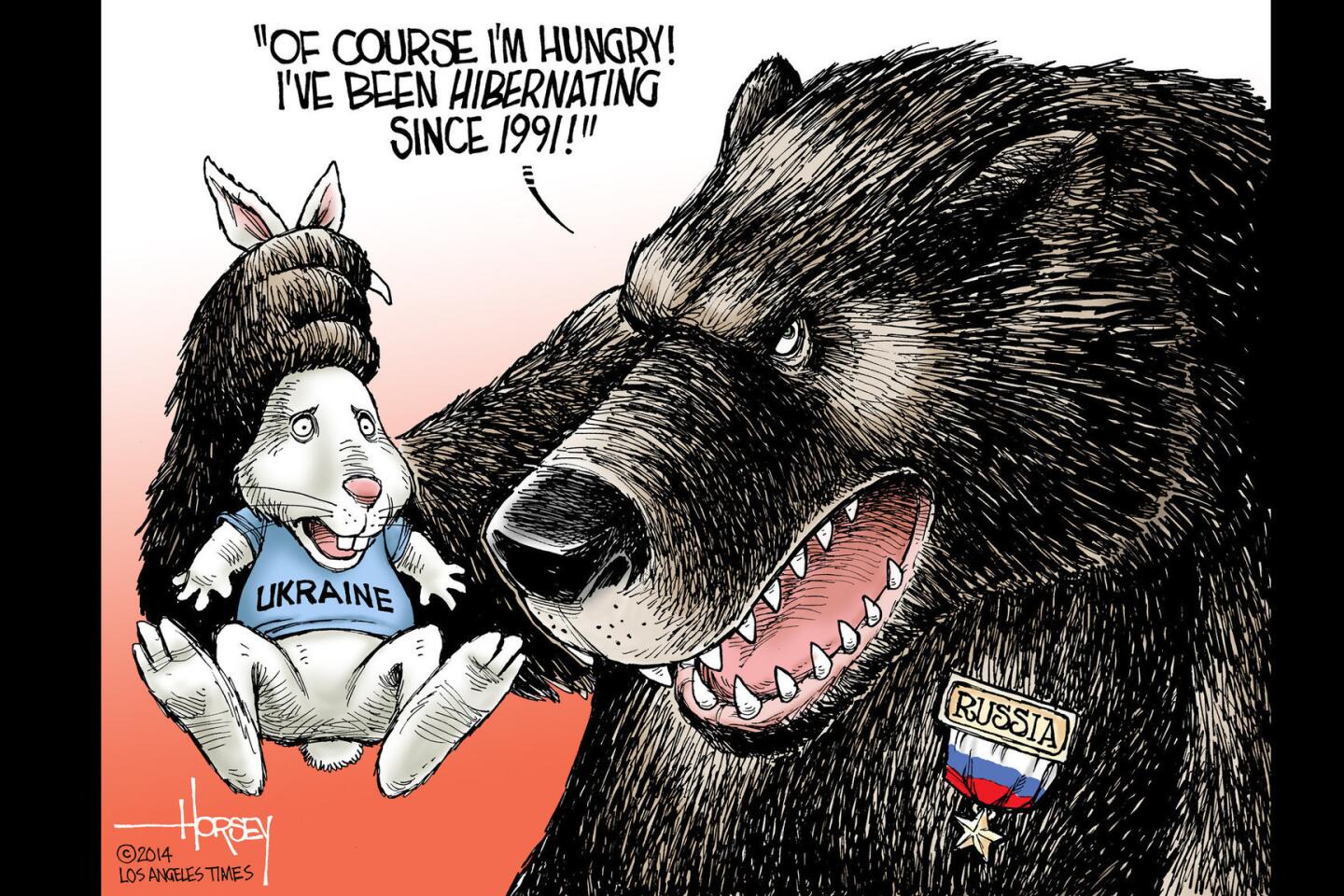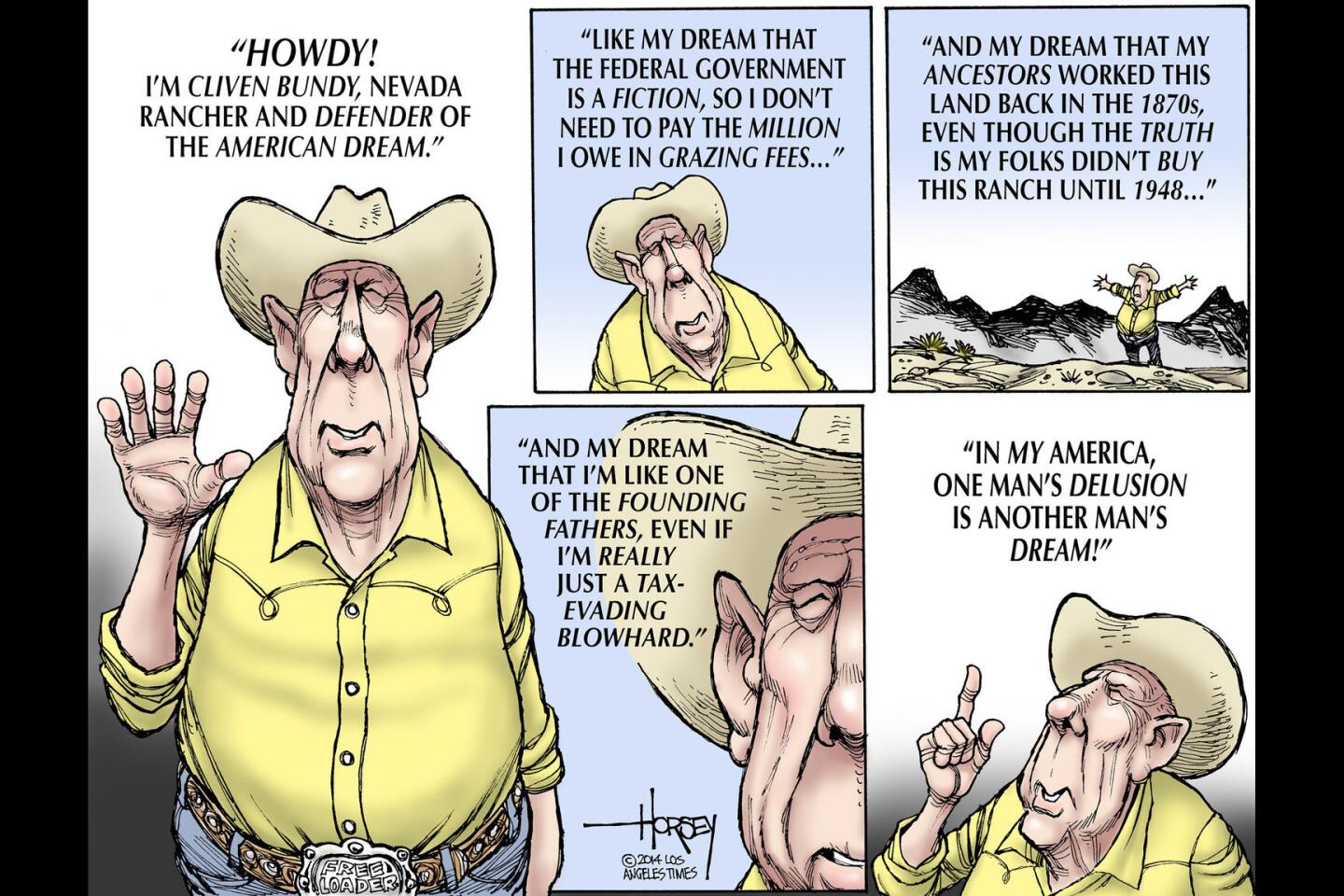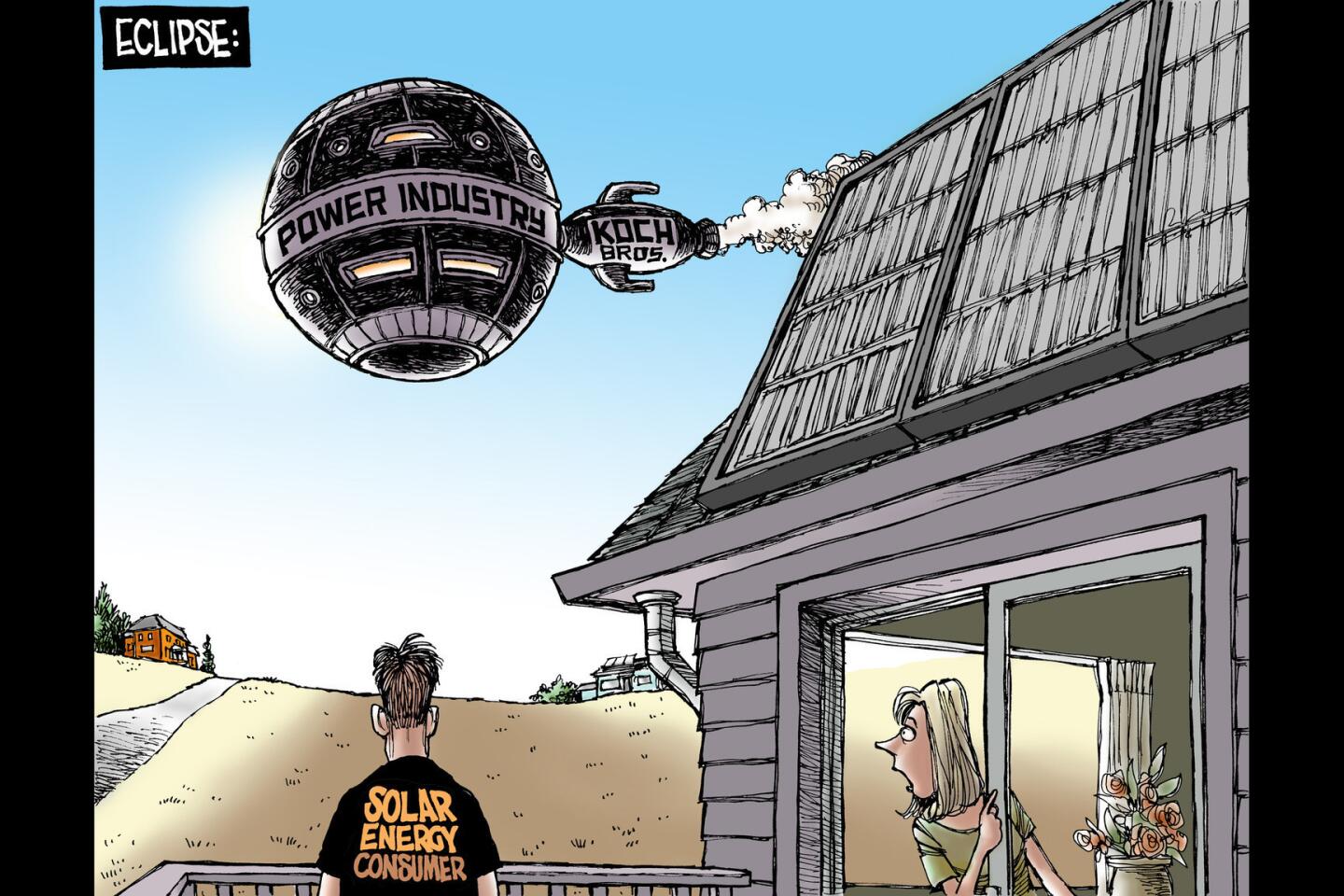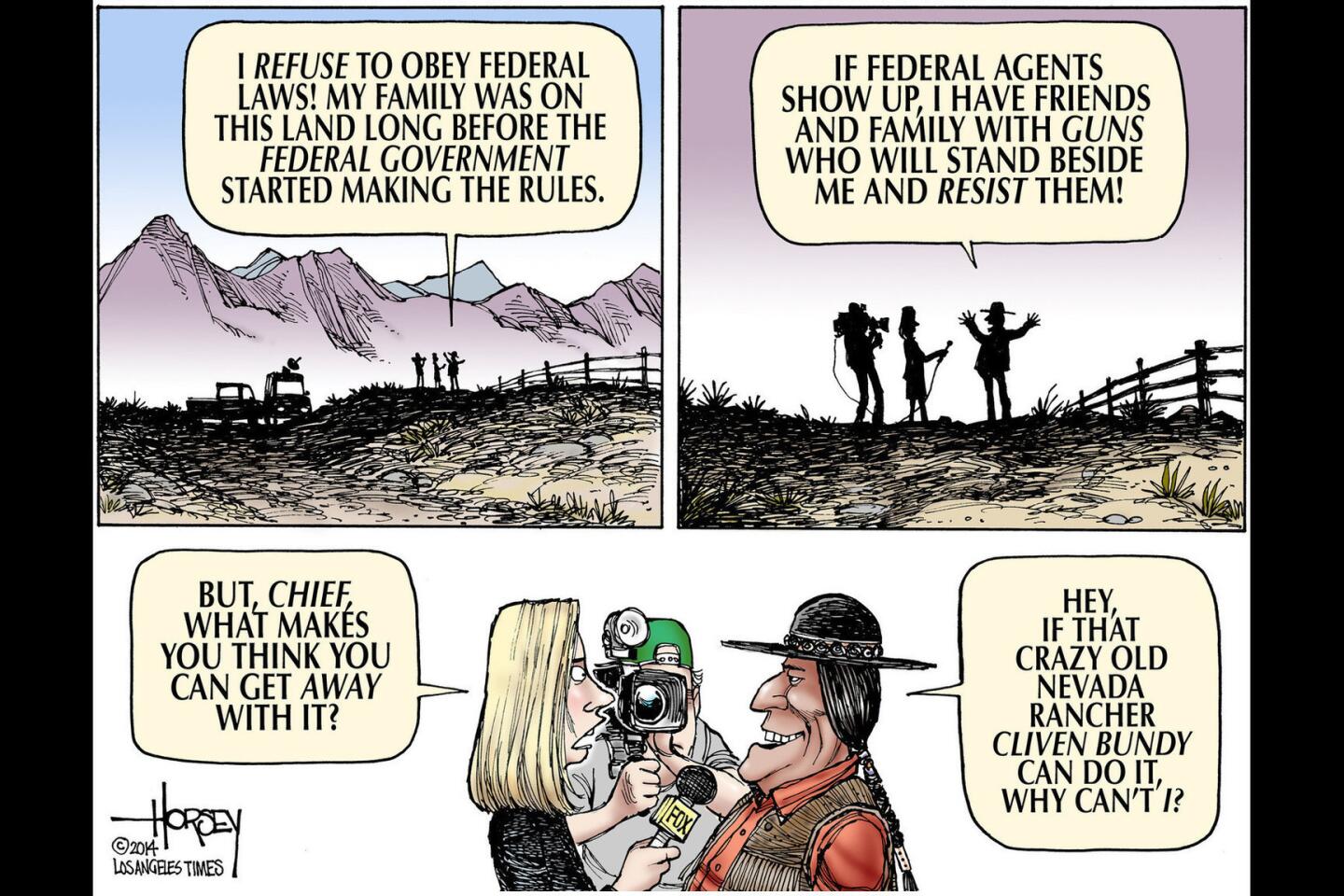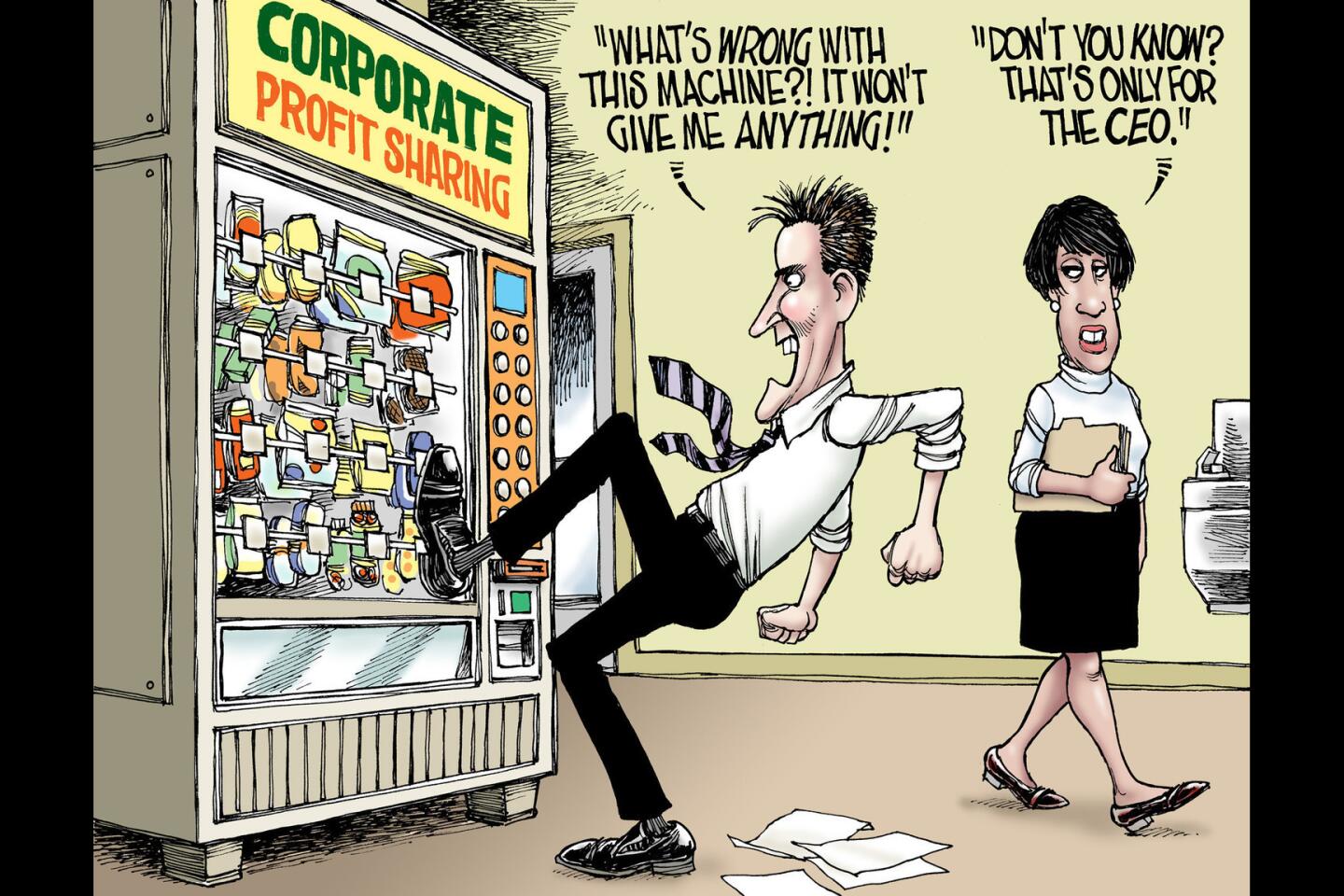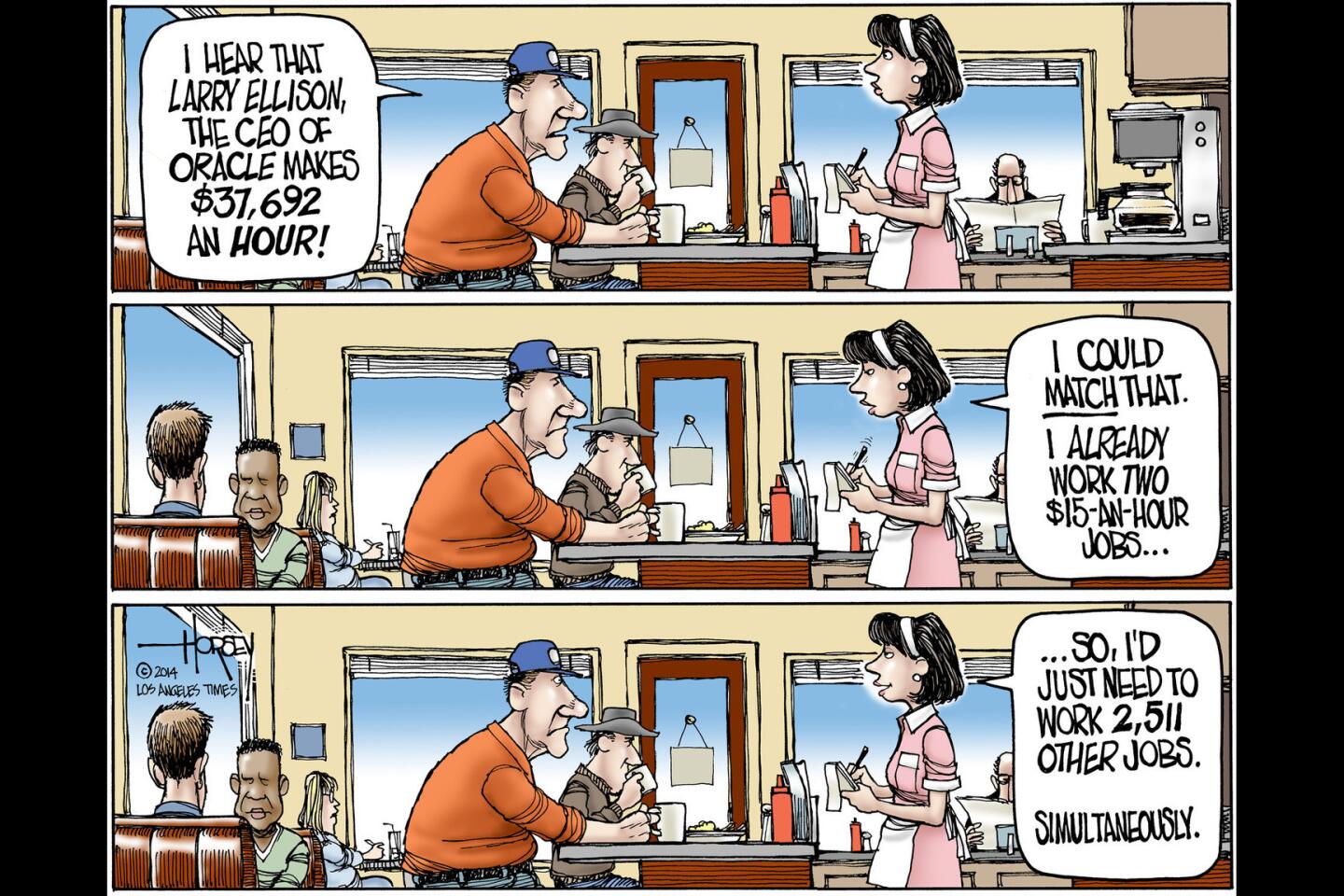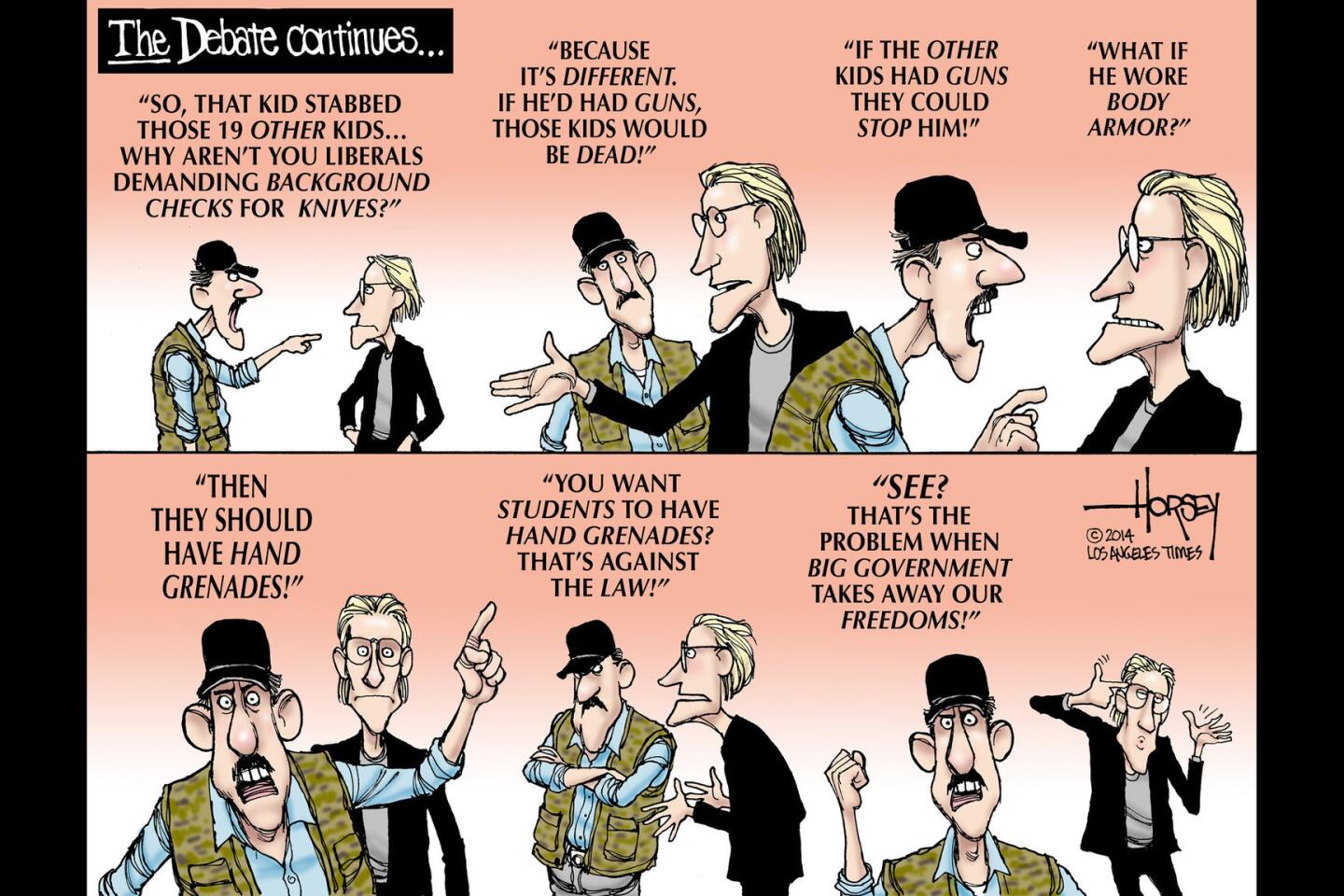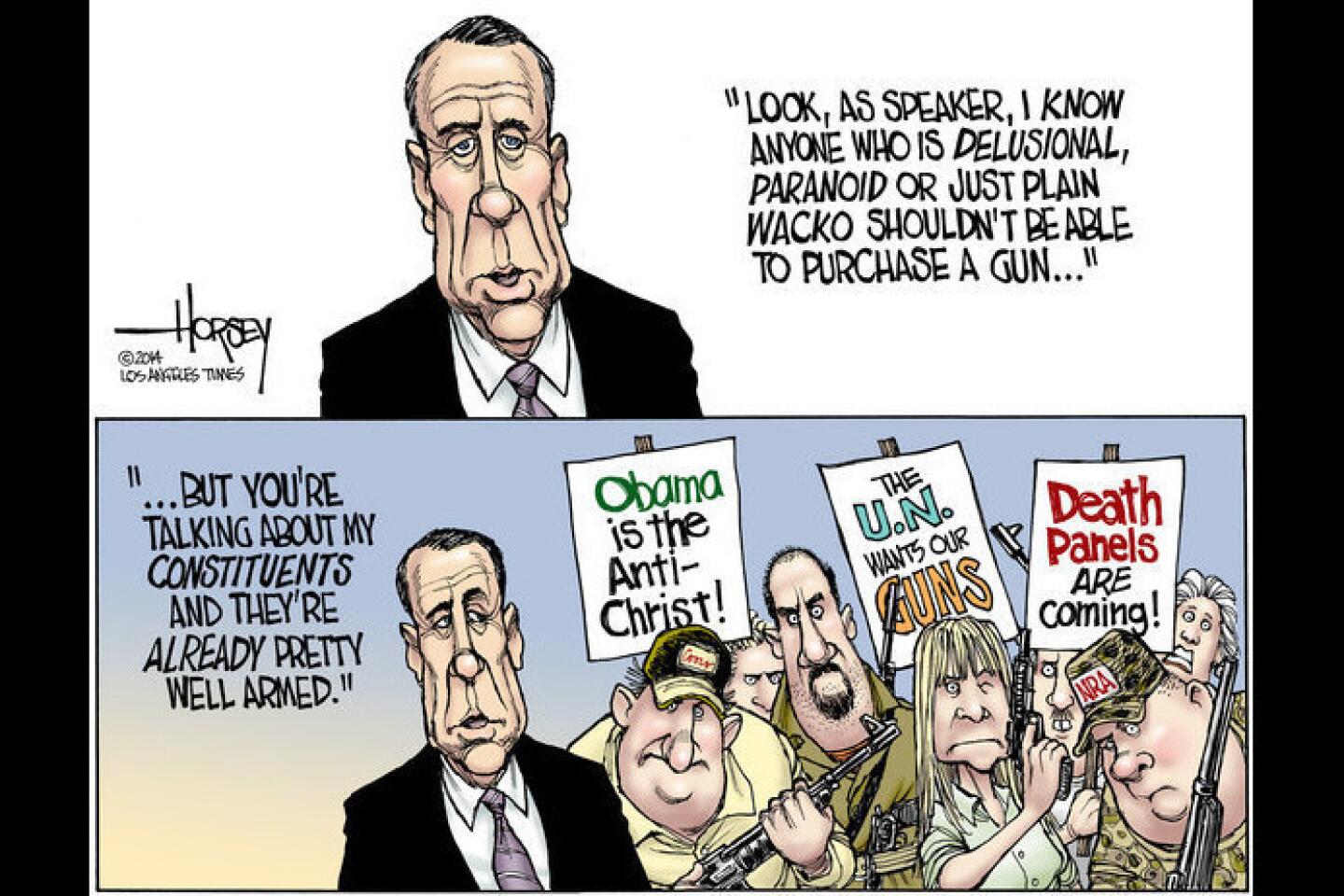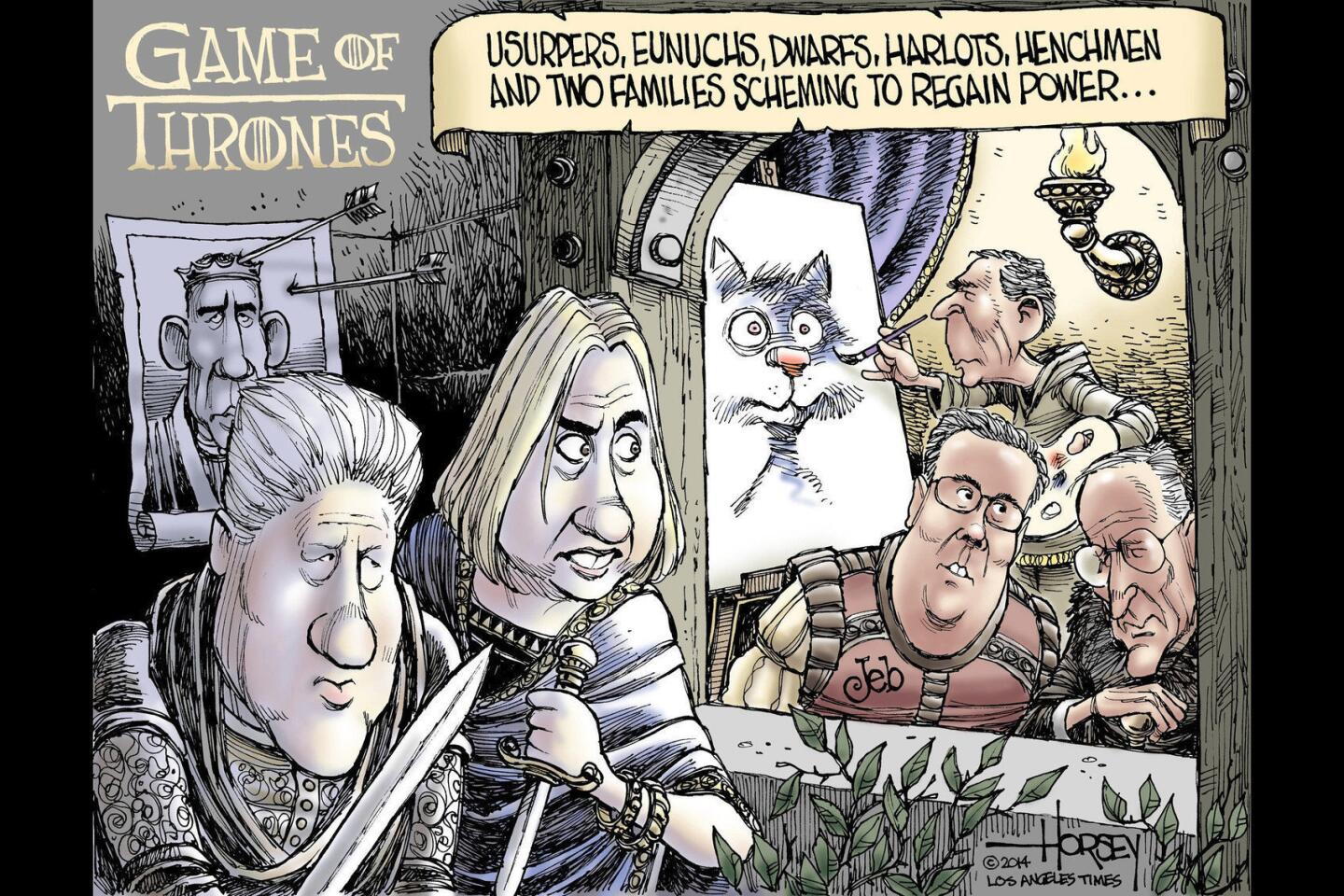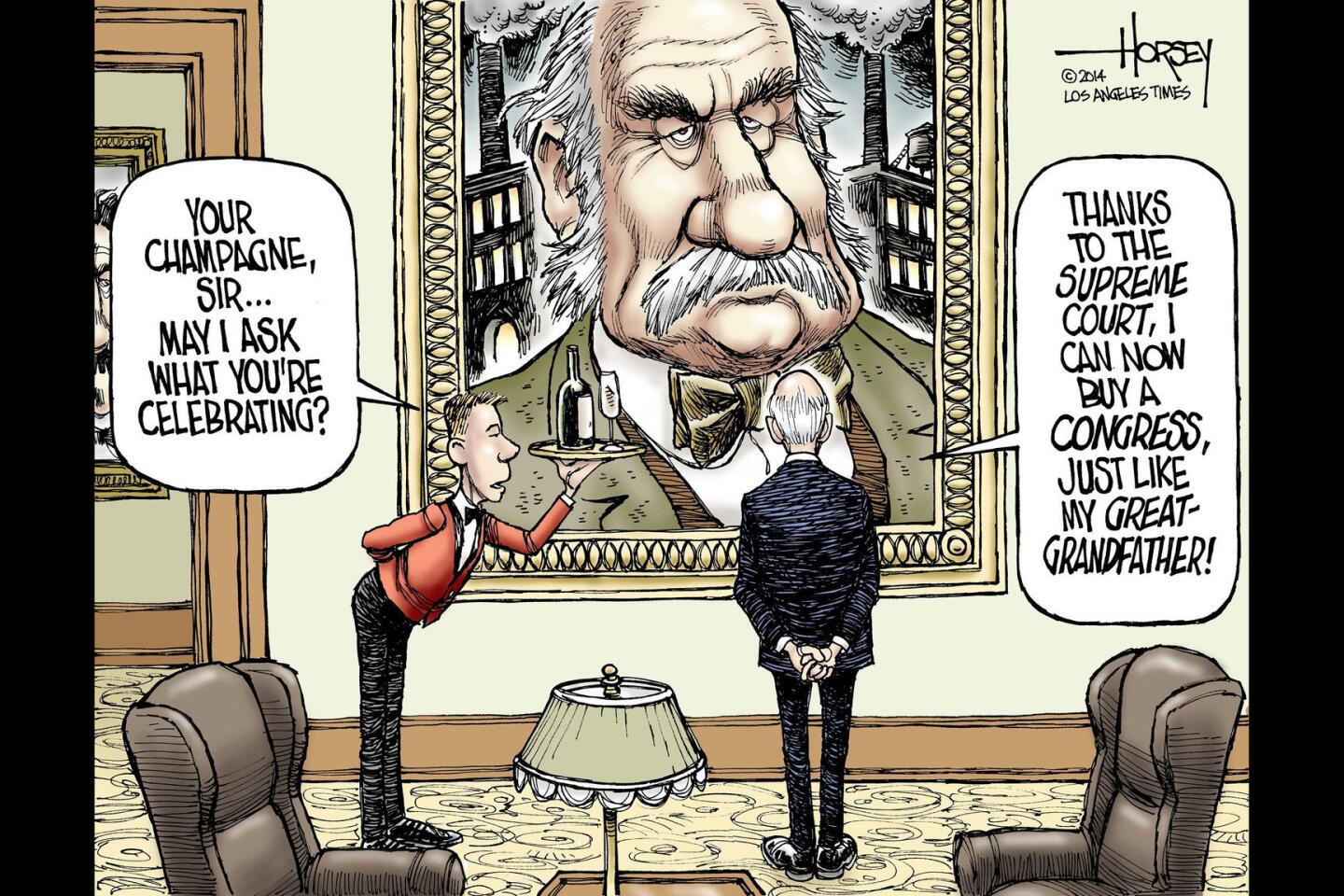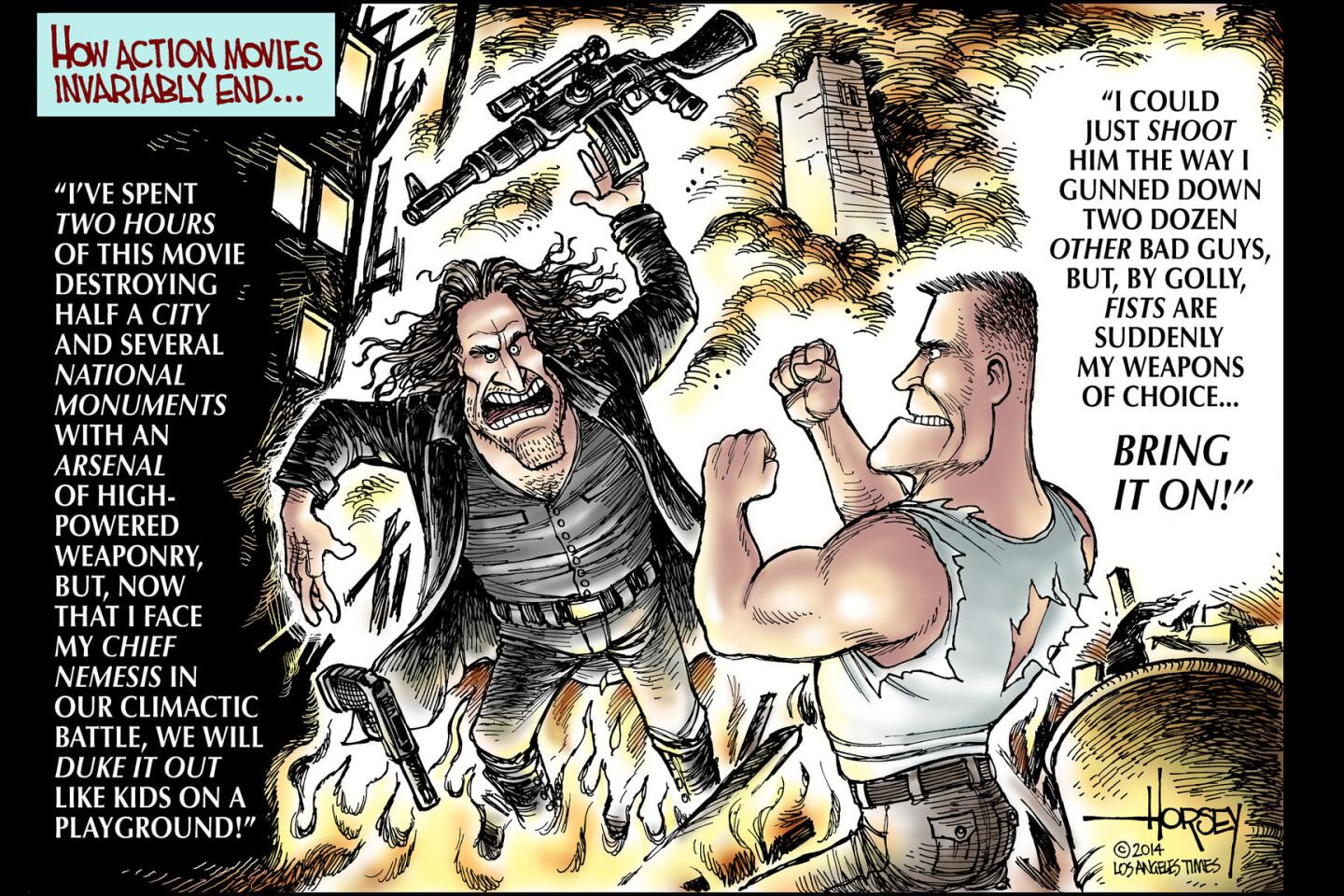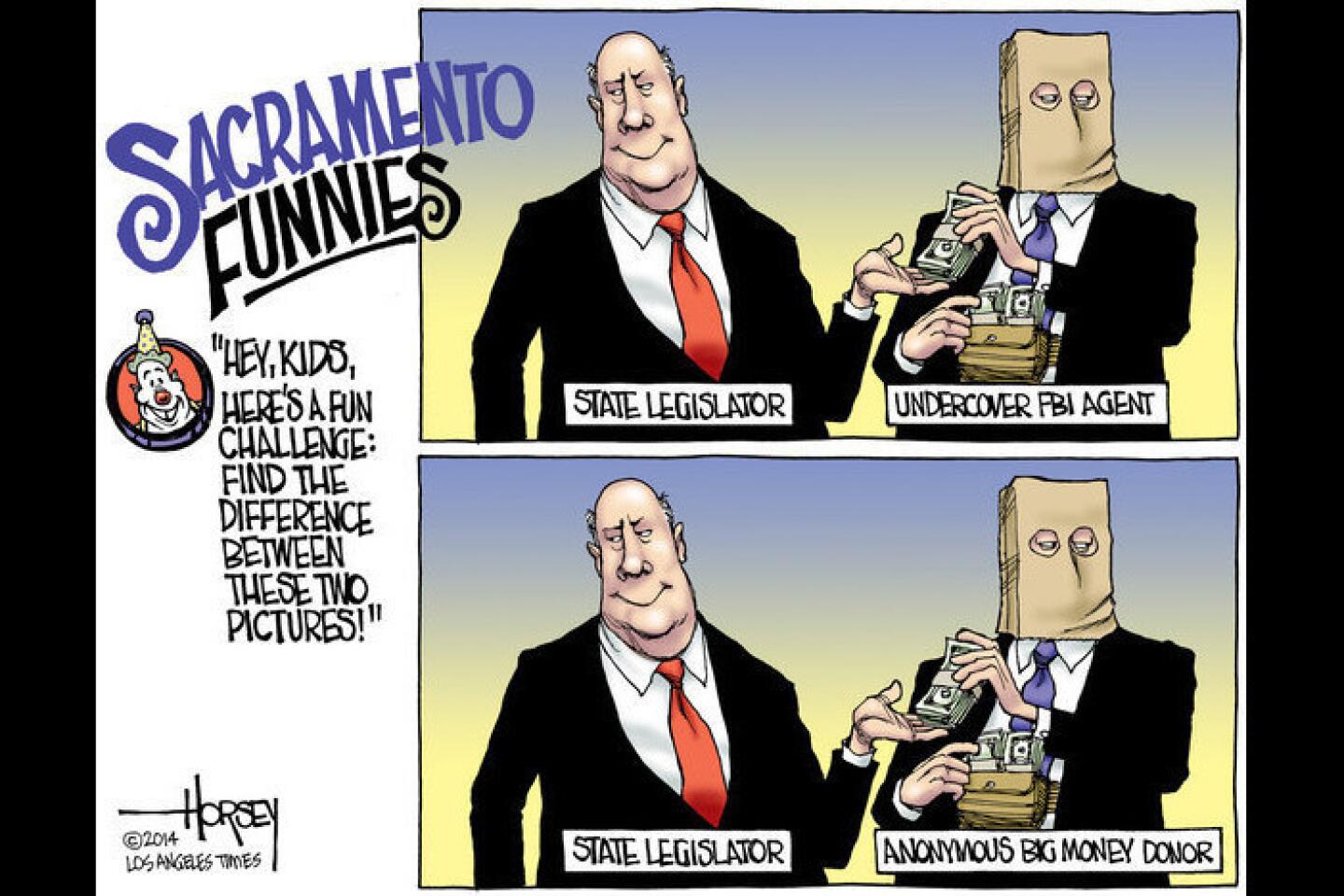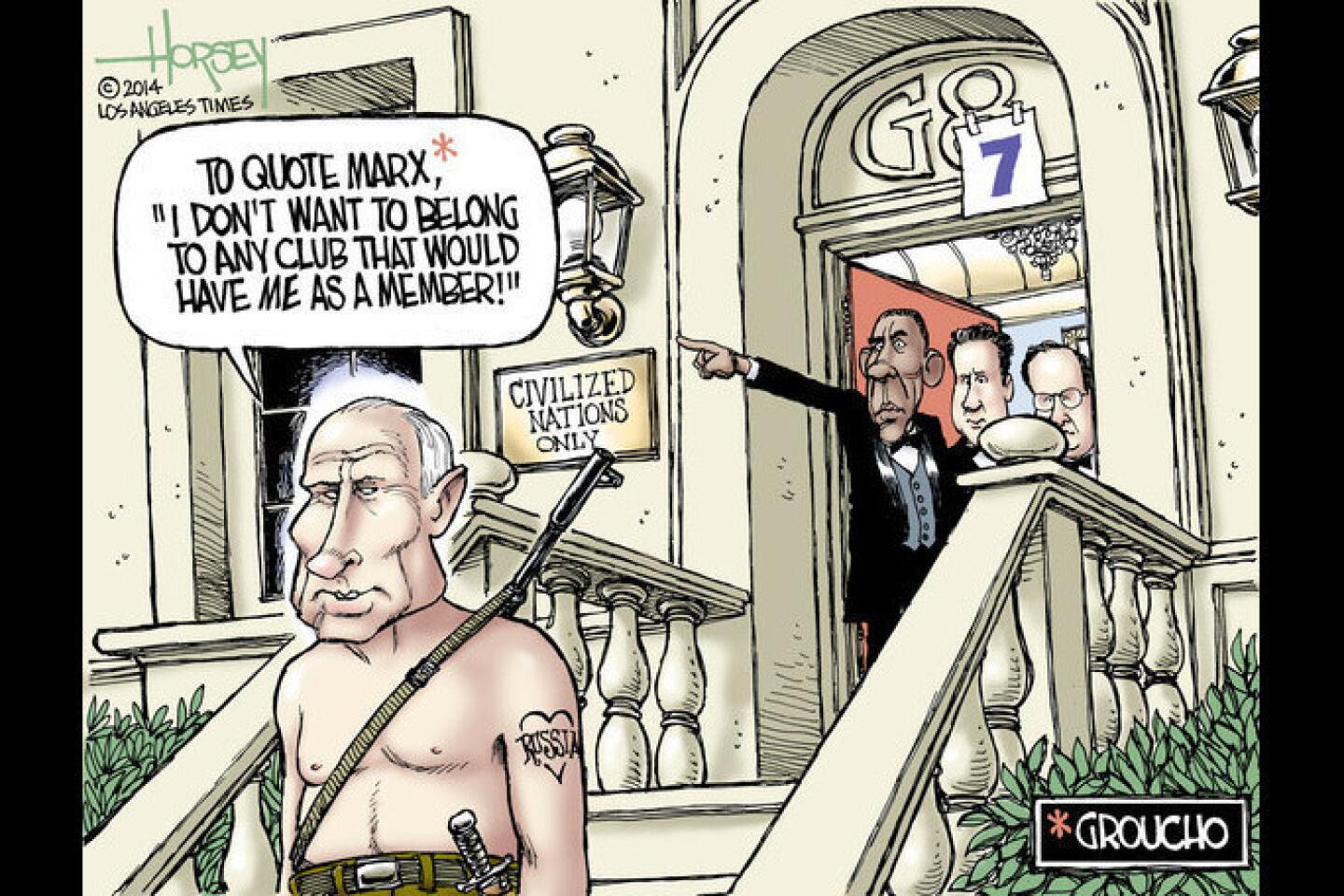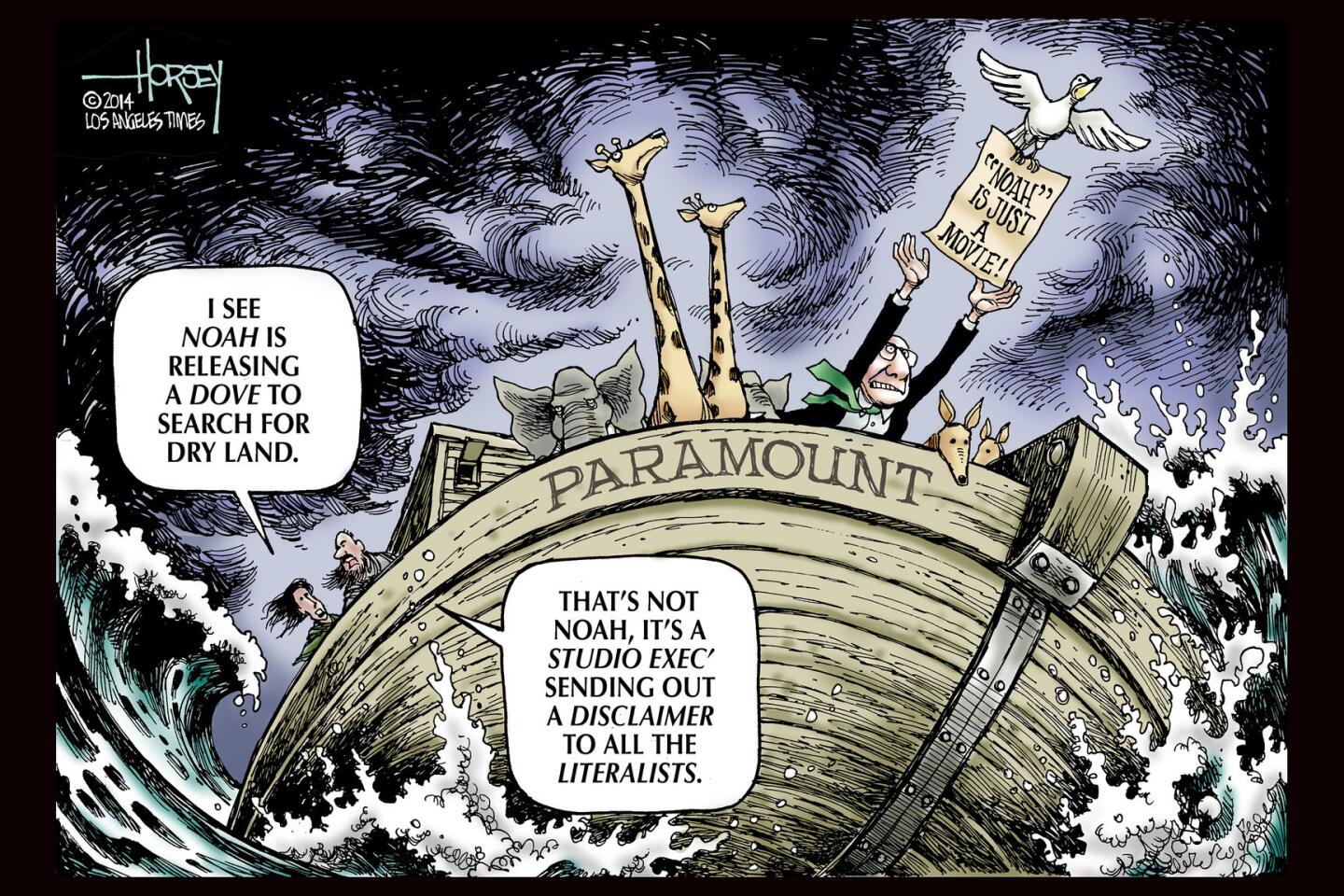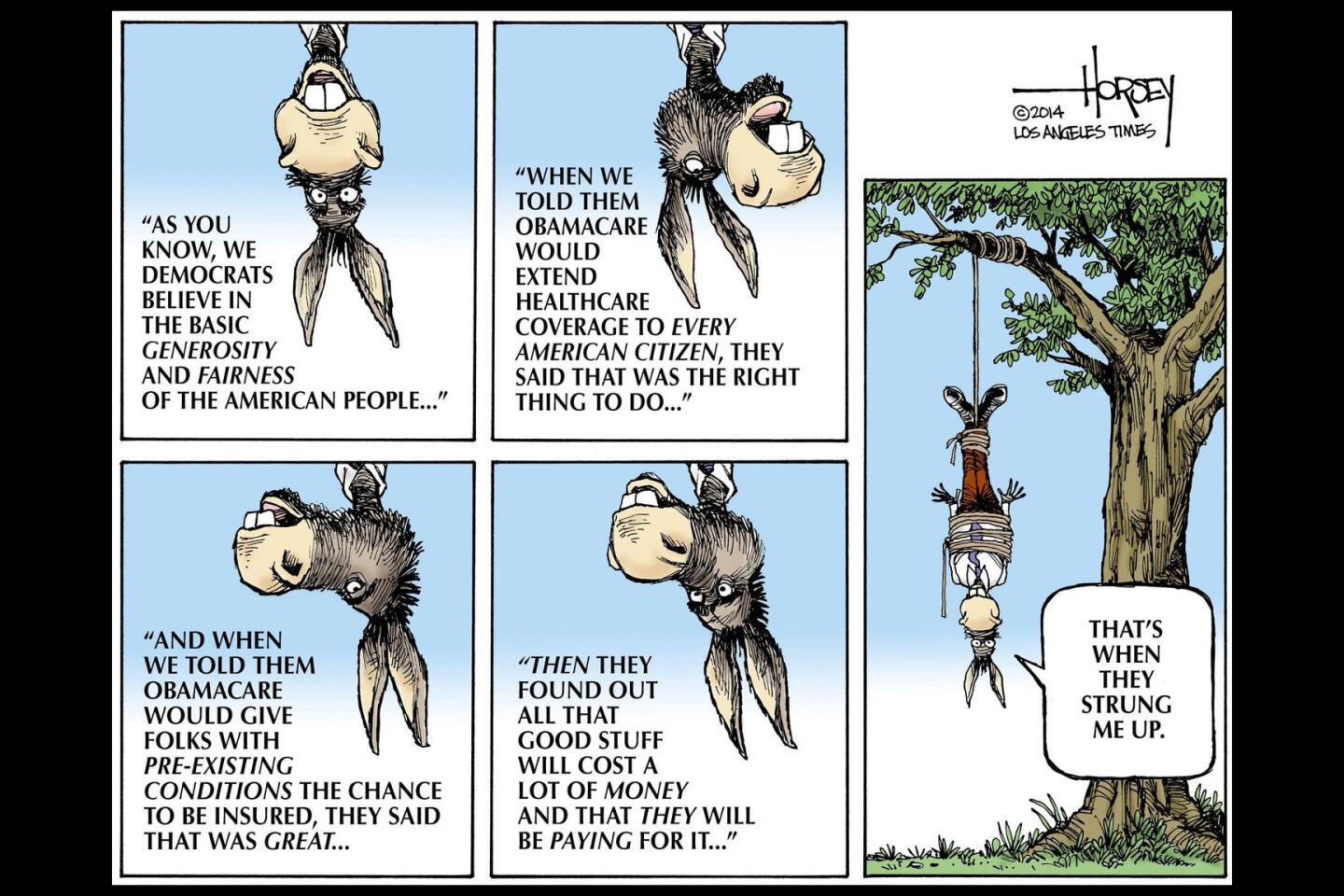Trump’s ‘America first’ policy has a big fan in the Kremlin
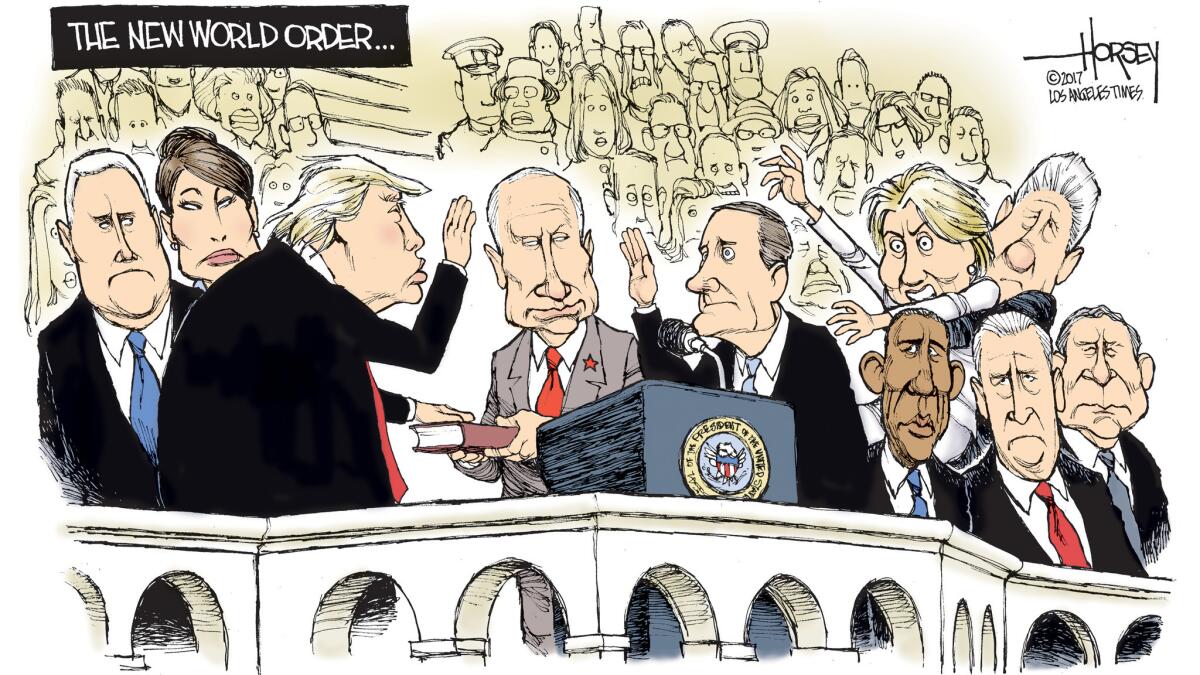
- Share via
The central theme of President Donald Trump’s inaugural address was “America first,” and, perversely, that may be very good news for Vladimir Putin and bad news for allies of the United States.
A new decree is going out across the world, Trump declared. “From this day forward, a new vision will govern our land,” he said. “From this day forward it is going to be America first, America first.”
Trump’s vision, as detailed in his speech, is a dark one in which the country he now leads is besieged by drugs and gangs and crippled by bad schools and rusted factories. The United States has “defended other nations’ borders while refusing to defend our own,” he said, and “spent trillions and trillions of dollars overseas while our infrastructure slipped into decay.” American factories have been shuttered and manufacturing sent overseas, Trump said, while “the wealth of our middle class has been ripped from their homes and redistributed across the world.”
The new president characterized it as an “American carnage.” The remedy he offered consisted of two rules: “Buy American and hire American.”
If it were just about economics, then the worst result of Trump’s approach would be a trade war, not that such a thing would be pleasant or wise. But it carries deeper implications than that. The “America first” slogan is worrisome because it was first employed by fascist-sympathizing isolationists in the 1930s who thought Americans could tolerate the depredations and anti-democratic regimes of Hitler, Mussolini and Tojo and simply get on with business, protected by the moats of two oceans.
Trump justified his “decree” by saying, “All countries should be free to pursue their self interest.” To many, that makes perfect sense. Why shouldn’t Americans put their interests ahead of the interests of others? What needs to be taken into account in answering that question is the fact that, since the end of the World War II, all the money spent abroad defending allies and aiding struggling countries in the developing world has served American interests very well. Yes, there were massive miscalculations — Vietnam and Iraq spring to mind — but, on balance, nearly eight decades of U.S. engagement, investment and leadership in international affairs has paid huge dividends, economically and politically.
So, there are a disturbing implications to Trump’s words. Do they mean American resolve to defend the democracies of Europe and Asia will wither as we narrow our definition of national interest? And what would it mean if all countries are left free to pursue their narrow self interest?
It is easy to imagine what that means in the Kremlin: a return to a world where great powers divided up the globe and allowed each other a sphere of interest in which they could plunder smaller nations and abuse the rights of minority populations. This is precisely why Putin has been such a fan of Trump. He takes the new president’s words as a signal, a green light to expand Russia’s hegemony into the Baltic countries, Ukraine and beyond.
Is that what Trump means? The corollary to “America first” is, logically, “Russia first” in their sphere and “China first” in Asia. Will Poland and Germany and Japan and Korea be cut loose to defend themselves in a Trumpian world where it is every man for himself?
As the fledgling president’s staffers redecorated the Oval Office for their boss, it is reported they brought a bust of Winston Churchill out of storage. If Trump’s foreign policy turns out to be what Putin hopes it to be, it might be more fitting to put Churchill back in the the closet and install a likeness of Neville Chamberlain instead.
Follow me at @davidhorsey on Twitter
More to Read
A cure for the common opinion
Get thought-provoking perspectives with our weekly newsletter.
You may occasionally receive promotional content from the Los Angeles Times.
